|
Spring Valley Elementary School, circa 1950 Photo credit: SAN FRANCISCO HISTORY CENTER, SAN FRANCISCO PUBLIC LIBRARY https://sfpl.org/locations/main-library/historical-photographs Master Teacherby Gloria Delgado Author's Note: All names but mine have been changed. I was 21, had earned my BA in Spanish at the San Francisco College for Women (aka Lone Mountain College), and was now working through my student teaching requirements with the goal of earning an elementary credential. Adding to the normal pressures and challenges involved, I was also overwhelmingly aware that, if successful, I would supposedly be the first Mexican student from Lone Mountain to earn a teaching credential. This made me a role model for some of my Latina lower classmates, who constantly questioned me about the realities of student teaching. They were trusting in me, relying on me to help them through the same experience. I was also engaged, and planning a late December wedding. Lone Mountain’s education department, although well-intentioned and nurturing in many ways, was still mired in the outmoded attitudes and mores of the 1940’s and false façades of the 1950’s. Our professors sometimes put more emphasis on proper appearance and demeanor, what we students called their “tea, hat and white gloves syndrome,” than they did in preparing us to deal with the actual education system. Student teachers had no written code of rights or duties, only unclear and nebulous obligations. One huge failing was that we had to complete our student teaching, one or more years at best, before even stepping into a classroom. Our entire education system was completely unprepared for the changing times and upcoming social turmoil of the 1960’s. The first half of my student teaching had been a delight. I loved being part of that third-grade classroom of students from Grover Cleveland Grammar School. My master teacher, a warm-hearted and generous woman, had encouraged and advised me, giving me many opportunities to work with individuals or with the entire class, a chance to develop a rapport with the children. I was even assigned a special project, working with a young Chinese boy who refused to speak in school. At the end of my time this master teacher and other reviewers gave me an excellent evaluation, and she and the students said their goodbyes with embraces and best wishes for the future. Enthused with how my experience had gone so far, I was eagerly looking forward to my second half of student teaching, this time in the middle of San Francisco’s Nob Hill and Chinatown neighborhoods. My next assignment would be Spring Valley Grammar School's fifth-grade classroom, and my new master teacher, Mrs. Butler. Spring Valley School had a long and troubled history. The oldest existing public school in San Francisco, first established around 1852, then relocated and rebuilt at its current address after the 1906 earthquake, during its early years was reserved for whites only. When in 1885 a young Chinese girl, Maggie Tape, won a California Supreme Court suit for the right to attend Spring Valley, the San Francisco School Board simply kept her name at the bottom of a never-ending wait list, and built another public school to accommodate “other” races. The Tape family finally moved across the bay to Berkeley so Maggie could attend school there. I knew something of the school’s history, but this was now 1962, and I was comfortable with the assignment and with the area. It was the neighborhood where my paternal grandparents had lived, met and married in 1904, and the narrow, steep streets and crowded neighborhood were familiar to me. Getting to the site involved a long commute, two buses plus cable car, then a stiff walk up and down hills all while wearing skirts and heels, as required by Lone Mountain’s strict dress code, which forbid the wearing of jeans or slacks and required high heeled dress shoes. Anything else would have been considered inappropriate or unprofessional attire. Situated in the middle of the block, surrounded by old wood houses and stucco apartments, Spring Valley Grammar School was a several-storied brick and cement building with large windows and stone half-columns at the front entrance. Around the structure were narrow asphalt play areas barely big enough to hold all the students at recess or lunchtime. I don’t remember a cafeteria. Half a block up from the school on one corner was a small Chinese restaurant; at lunchtime both students and staff formed long lines outside, waiting to buy a plate of rice or noodles, vegetables and meat. For two dollars, one order provided enough lunch for several to share. At this time the school population was about 98% Chinese; the principal, teachers, yard supervisors, secretaries were all white females. The only adult male at the school was the janitor, also white. I signed the log-in book before meeting with the principal, Mrs. Mitchell. She welcomed me with a warm smile, escorted me to the fifth-grade classroom, introduced me to Mrs. Butler, my new master teacher, then left. Upon the principal’s departure, Mrs. Butler appeared somewhat imposed upon by this unwelcome intrusion, this interruption of her routine. She coolly, slowly looked me up and down with what seemed barely disguised contempt, then introduced me to her students. “Class, this is Miss—What did you say your name was?—Of course. Miss Colville, Miss Cavi—How do you pronounce that again? Oh. Yes. Miss Cal-vee-yuh, who will be with us for a few weeks. She wants to learn how to be a teacher.” Then, in an undertone, I was dismissed: “Go to the back of the classroom, take a seat, and just watch what I do.” “Just watch what I do.” And that’s all I did, three half-days a week, for what seemed unending hours; I watched her do whatever she did—but without taking a seat. There was no chair, no stool, no extra desk for me to use, and none was ever provided all the months that followed. I was not allowed to speak with or interact with any of the students when Mrs. Butler was present. Banished to “the back of the bus,” as it were, I stood in uncomfortable high heels in a corner by one of the two doors to the cloakroom or leaned against the middle of the wall. These initial long hours of standing and watching did prove valuable. By moving casually from one side of the classroom to the other, I managed to get glimpses of the students’ faces, and in three days came to know them all by name and personality. This was the era when the Asian school population, still labeled “the model minority” by 1950’s society, had names like Alexander, Lily, or William; none used a Chinese given name in school. All the fifth graders at Spring Valley School were attentive, polite, clean, neatly dressed, healthy, and apparently happy; that is, all except for one—Marcella, the only white girl in the class, the only white girl in the entire school. Mrs. Butler was a slightly stout, imposing woman in her late 50’s with meticulously waved short dyed blonde hair, icy blue eyes, and perfect makeup. Not one for riding buses and cable cars, she rode to and from campus in a Yellow Cab, arriving and departing always on schedule. Impeccably, even modishly attired, she would sit unmoving behind her desk for long periods of time, on occasion rising majestically from her chair to write on the chalkboard or to lecture. Everything about her was carefully controlled—her appearance, her demeanor, her voice, her movements. Mrs. Butler never rushed, never raised her voice in excitement, joy, or anger; everything she did was dignified, reserved, calculated. Her teaching style, lectures, even her occasional compliments to the students acknowledging good work or a successful grade, were muted. The fifth-grade classroom was attractive, a large turn-of-the-century style square high-ceilinged room filled with rows of wooden desks lined up in orderly fashion. On the left side of the room light streamed through several huge waist-to-ceiling stacked wood windows that had to be opened or closed against the changing weather with a long wooden pole, an iron hook on one end. Leafy green plants, cared for by the students, sat on the wide windowsills. On the opposite wall were two doors with transom windows. Black chalkboards covered the remaining space. A dark upright piano, apparently never touched, stood in one corner of the front wall. At the rear of the classroom was the cloakroom, a door at each end. Maps, globes, flags, some bookcases, a black clock hung high filled the space. The large oak desk presiding at center front was topped with neatly stacked books, notes, daily lesson plans. A slender vase by the handbell occasionally held flowers Mrs. Butler or a student would bring, pastel blossoms, a white camellia, or a sprig of the dainty pink sweet-fragranced Cécile Brünner roses that once flourished throughout all old San Francisco neighborhoods. But the most notable article on Mrs. Butler’s otherwise nondescript desk, the only object reflective of Chinese culture in the classroom, was the reclining figure of a jovial Chinese god with a bald head and fat round belly. This large carved wooden figure was obviously valuable. Placed to the far-left front edge of the oak desk with his back to Mrs. Butler, the laughing god faced the rows of student desks. “Who is this? Is this Buddha?” I seized the opportunity to ask the class one day when Mrs. Butler was called out for a moment. “Why, he’s not Buddha, he’s the Laughing God, Budai,” the children, now surrounding me, eagerly explained, “the god who brings good fortune. His big bag holds everything we need for everyday life. He’s the happy god who protects all his children. Rub his belly,” they insisted, “it brings you good luck!” And so, I rubbed Budai’s belly daily, asking for protection and good fortune for the children; and for me, the strength to get through another day watching Mrs. Butler. *** Later one afternoon Mrs. Butler and I were alone in the classroom when she asked, with no preamble: “Where were your parents born, Miss Cal-villee-yuh?” Knowing this was code for …what are you, I can’t figure you out, and not knowing really bothers me… and offended, not by the question, but by her manner, I deliberately and literally answered the question she asked, and not the question she wanted to ask. “My father was born in Guadalajara, Jalisco, Mexico, and my mother on Ewa Plantation, Oahu, Hawai’i. “Oh, so you’re Hawaiian! No wonder you look so exotic!” “My mother is not Hawaiian, she is Puerto Rican, born in Hawai’i because that is where her parents were living at the time; that makes me Mexican and Puerto Rican.” Then, still feeling the sting of her irritating use of the word exotic, in a not very subtle attempt to redirect the conversation I asked her about the figure on her desk, not revealing that the students had already introduced us. “It was a ‘welcome to our school’ gift given to me by the Chinese parents when I first started teaching at Spring Valley.” Her bland, rote monotone response to my question lacked warmth, a sense of gratitude, enthusiasm, or sensitivity to what Budai obviously meant to her students and their families. They had given her part of themselves, part of their culture. Did she see Budai as more than just a block of wood, did she understand, did she even care? No. She had referred to Budai as it, not as he. Then she said: “You know, dear, you really should smile more; you would be so much more attractive.” I was put firmly back in my place. Mrs. Butler turned and sat down at her desk; the children returned from recess; lessons resumed. Reflecting later on our exchange, I had the strong overwhelming intuition that Miss Butler intensely disliked the figure of Budai, finding him too exotic, too foreign—like me. But the figure was something she could not easily dispose of, not if she wanted to keep her job and the approval of the parents. Budai and I both might be thorns in her side. One thought followed another. Did she dislike her job? Had society changed too quickly for her, made her feel trapped at Spring Valley, helpless, unwilling, unable to adapt or cope? Did she even like her students? I already knew, even after a few days, that she intensely disliked, possibly even hated me. Did she, deep inside, dislike her students? But why? For being unworthy of her talents? For being different, exotic, Asian? These unwelcome intuitions of mine were sickening and ugly; and I tried to suppress them. Still stunned by their impact, stomach churning, thoughts and speculations reeling, I took up my usual post standing at the back of the class. *** Some of the other teachers would occasionally talk with me when I spent time in the faculty lounge; for the most part I was ignored. “Oh, so you’re the new student teacher” was the comment I heard most frequently that first week. “Hmm… You know, of course, that she didn’t want another student teacher. You were forced on her, just like the previous one, that young black woman. She didn’t last long either, poor thing.” And when Mrs. Butler walked into the lounge the conversation instantly shifted, and I became invisible. With time enough to reflect on what had been said, I realized that Mrs. Mitchell’s accompanying me herself to Mrs. Butler’s classroom, and her introduction of me to Mrs. Butler in the presence of the class, was not the generous, friendly gesture I had initially taken it to be, but was the outcome of a clash of wills between the two women. And Mrs. Mitchell, as principal, had won that particular battle. Mrs. Butler could not easily dispose of me if she wanted to keep her job and the goodwill of her employer. On my way home one afternoon that same first week I was headed to the front entrance when the janitor, still carrying the mop and bucket he had just used to clean the floors, called out to me. “Miss! Say, Miss! You the new student teacher?” he asked, turning his head back and forth, apparently checking the hall to see if anyone else was around to hear. I nodded, uneasy, unsure where this was going. “Watch out for her, that damn bitch, she’ll try to do something to you, she’ll try to hurt you.” “Who will?” But I already knew the answer. “Butler, of course, who else!” He smirked, looking me up and down, appraising me almost as coolly as Mrs. Butler had done that first day. This one won’t make it, either… Shaken, but attempting to conceal it, I only nodded, gave him an icy “Thank you,” knowing that a new student teacher shouldn’t be seen alone in conversation with a janitor. I left for home, thinking: I know she dislikes me, but what could she possibly do to me, and why should she bother? I’m nothing but a very small temporary thorn in her side. At first, in an attempt to bring down the barriers between us, I tried to engage Mrs. Butler in conversation during the breaks in the teachers’ lounge. I assured her of my willingness to tutor students needing assistance with math problems or reading, to help with anything, anything at all. But the days went by; nothing worked, nothing changed. She terminated any thought or suggestion of mine with the same admonition: “No. Just watch me and see how it’s done.” *** Two weeks into the semester, while in the office signing the attendance book, I was surprised to see a familiar face. Mary Henley and I had been through grammar and high school together. “I’m the fourth-grade teacher now,” she told me, and after learning I was the new student teacher, she whispered: “I’ve got to leave now, I don’t want to be late, goodbye,” then abruptly turned and went off down the hall to join her class. What was that all about? Although we were not friends, we had always been on friendly terms, and there was still plenty of time remaining before the first bell. Mary was a shy and quiet person, but to witness this timid, even fearful behavior of hers was unsettling. Was it the mention of Mrs. Butler as my master teacher? I never spoke with Mary again, and only caught occasional glimpses of her across the auditorium during school assemblies. Mary never joined the others in the teachers’ lounge, never lined up for lunch at the corner, never seemed to leave her classroom. I wondered what, or who, she was avoiding besides me. It would have been nice to have someone to talk with, to see a friendly face, to have an ally. It was all so strange; Mary too had almost disappeared, become invisible. Was Mary afraid of Mrs. Butler? I would never know. Something was very wrong here; was it the school, was it Mrs. Butler, or just me? *** “Just watch what I do.” And so, I continued. Standing, I watched her for days, then weeks on end, gradually learning that something was indeed wrong, but it was difficult to describe at first, difficult to put into words. Yes, something was wrong, and it seemed to begin here, in this classroom. I watched and learned. Mrs. Butler did nothing overt, nothing that would ever leave her open to criticism. Her interactions with the students were to the casual outside observer always pleasant, mellow, full of compliments. She was not one to lose her temper. She was always so subtle in her methods, in her cruelty. Mrs. Butler’s particular type of cruelty was new to me, and difficult to describe. It was not what she said or did, but how she said or did things, with an ease far beyond my experience. Most of the wounds she inflicted were quick tiny jabs, like mosquito stings, almost invisible on the surface, but nevertheless capable of leaving behind deep and festering infections. Mrs. Butler pretended not to notice the effect her hints and insinuations had on the students; but I noticed; I watched. She always said and did things deliberately, never carelessly, or half-way, or by accident. Her techniques were not as effective on the boys who, at this still mostly innocent age of nine or ten, more easily managed to ignore them or shrug them off. Anyway, Mrs. Butler seemed to prefer to manipulate the girls. This morning, Louise was her focus, her tool. “Look, everyone, Louise is so pretty today in her new dress! Louise always looks so nice, her clothes are always so beautiful!” All eyes turned as one to gaze at Louise, who, head down, hands clasped together in her lap, smiled modestly, basking in the compliments. Subtly made conscious that Louise had …something… that they lacked, the other girls’ eyes, glazed and clouded, went blank for long silent seconds. The girls were still too open-hearted to actively dislike Louise, or Celia, or Sara, whoever was singled out to be complimented for the wrong reasons, whoever happened to be Mrs. Butler’s chosen focus, her tool, the target around whom she created and fomented negative feelings within the group. They didn’t actually dislike each other, not yet; but I could sense dislike and jealousy and hubris building and growing, little by little, created, cultivated and maneuvered by Mrs. Butler. Louise in particular didn’t need to hear such frequent compliments. The treasured daughter of a comfortable family, Louise was a nice girl, a beautiful child who always arrived at school wearing expensive new dresses, her long straight gleaming black hair carefully arranged and tied back in bright ribbons. Excessive praise, and being singled out for her attractive appearance day after day could only do her harm—but could this really be Mrs. Butler’s goal, to cause harm to Louise, to the children? I was stunned, ashamed of my suspicions. They filled me, nevertheless, and couldn’t be ignored. Marcella, the only white child remaining in the ever-shifting class, was Mrs. Butler’s most frequent target, the daily recipient of twisted compliments. Mrs. Butler hardly bothered to disguise the scorn and contempt she felt for the girl. Perhaps she considered Marcella to be too simple, too easy a target, and unworthy of her subtlety? The daughter of a poor family, this clumsy, gangly girl was never complimented on her dresses, never came to school wearing ribbons. With her blonde hair chopped off just below her ears, ends carelessly pulled back in a rubber band, she was always dressed in clean but threadbare old clothes. She spoke, when pressed, with a soft southern country drawl. Apparently still in the awkward stages of early puberty, a full head taller than her classmates, Marcella lacked the easy grace and charming manners of her quicker, more coordinated, more sophisticated classmates. Mrs. Butler began: “Look, everyone, Marcella has finally managed to—finish her work on time—make only three mistakes on her test—skip rope for one minute before tripping—get a C—catch the ball and only drop it once…” Every day brought fresh opportunities to single out Marcella in this negative way. Today it was a class game of basketball. “Look, class, Marcella finally threw the ball into the basket! She found the basket! Let’s everyone clap for her. Yeah, Marcella!” “Yeah, Marcella!” the class parroted Mrs. Butler, clapping in unison, in bored, orchestrated applause lasting only a few seconds. The unfortunate girl, hair coming loose from the rubber band, strands flying out in all directions after her strenuous efforts, and horribly embarrassed at this additional reminder of her general ineptitude, looked down at the ground, her body writhing, her mouth twisted into a caricature of a smile, the toe of one worn shoe grinding into the ground, as if digging an imaginary hole in which to hide. The bell rang, the children gathered to return to the classroom. Marcella paused, hanging behind, waiting to take her usual place at the very end of the line. Angry thoughts filled my mind: Marcella will bloom at her own time, but this woman just won’t let her alone. Why does Mrs. Butler hate her? Does Marcella remind her of herself at that age? Is it because she is the only white girl in the school, and Mrs. Butler is ashamed of the girl’s poverty, of her shabbiness? Could it simply be that Marcella’s hair is naturally blonde? It was cruel of her to constantly single out Marcella this way, and exceedingly painful to watch it being done. I could do little about it but gently touch the girl’s shoulder, smiling at her after everyone else had turned away. “You did very well today, Marcella,” I whispered. She lifted her head and looked straight into my eyes. My reward was one of her genuine, sweet smiles. *** My time at Lone Mountain was becoming more and more stressful. I felt tremendous pressure, receiving little help and even less guidance from an unsympathetic and clueless education staff. When I tried to describe the poisonous atmosphere at Spring Valley to my supervisors, they thought it was mere complaining. They didn’t even hear me. After all, Mrs. Butler hadn’t done anything wrong, not really. No one had done anything to me, not really. “We’re sure things are fine, dear. She’s your master teacher after all, she must be happy with you; if she weren’t we would have heard. There’s still plenty of time left for your evaluation. Don’t worry so much. Just be patient, cooperate, do your best.” Platitudes, empty platitudes, with no insight, no empathy, no understanding. I was sick of it. During my two days a week back at college, the younger Latinas questioned me relentlessly. They wanted to hear the truth, not platitudes, not empty phrases. They needed to know exactly what I was experiencing. It was all up to me to tell them this truth, that it wouldn’t be easy, that many people were out to block us in any way possible. My goal, my future, my classmates’ futures and hopes were at stake; and everything was slipping away. I was their symbol, their apparent leader, and I was about to fail. *** Tired of watching Mrs. Butler, suddenly one day something within me snapped; it all became too much to bear. No more! I’ve had enough, now it’s my turn, you will start watching me! I did nothing overt, nothing disrespectful that would leave me open to criticism, but I would not give up, crawl away or hide. Too much was at stake. I would not become her focus, her target, another Mary Henley. Now, my father’s favorite saying again came to mind, and I took up the challenge, followed his imperative. “Jalisco, no te rajes! Jalisco, never give in!” Now, I crossed from one side of the room to another, moving only when Mrs. Butler’s attention was elsewhere. It was petty and childish, but I did it anyway just to annoy her. Before, I had always entered the classroom by creeping in the back door like an intruder, rubbing Budai’s belly only when there were no witnesses. No more. Now, entering by the front door, I deliberately crossed the classroom directly in front of her desk, now I wished her a cheerful “Good morning,” now I greeted Budai with a quick rub of his belly before taking my usual place in the back. The students may or may not have noticed, but she certainly did. Ignoring her glares, subtly daring her to admonish me, I started greeting and addressing the students by name when we lined up for recess, gathered in the playground, or made trips to the assembly hall. In spite of knowing she would ignore me, nevertheless several times a week I would politely ask the same questions: “When will I be allowed to teach a lesson, to help the students? And my evaluation, when will it be scheduled?” I began writing in a small notebook while Mrs. Butler lectured, jotting down nonsense things, random thoughts, anything to keep from going insane, to keep the classroom walls from closing in on me. That little notebook would become my refuge, a safety net. My stomach would hurt once in a while, but I ignored it. One morning, in an excess of boredom, I grew careless. Standing at my usual place beside the back wall, I was writing some nonsense in my notebook, eyes focused on the paper, when Mrs. Butler suddenly appeared in front of me. It was dizzying and disorienting to see her any place other than the front of the room, as though the earth’s axis had tilted. “What do you keep writing in that book of yours? What do you have in there that’s so important?” she demanded. Yes! Finally, I had gotten to her! “Oh, nothing really important,” I coolly, glibly lied, “just random thoughts that occur to me. I note down good methods or techniques you use to teach, ideas for lesson plans, things you do that are effective, stuff like that. Would you like to see?” I offered her the open notebook, certain she would refuse it. Mollified, she shook her head no, returned to her proper place in front of the classroom. Oh my God, I knew it! She believed me! She won’t ask about the notebook again. But maybe I was watching and learning too well. The idea of beating her at her own game for a moment had felt strangely challenging and appealing to the ego. Hubris? And what about my classmates who were depending on me? Being in the same room with Mrs. Butler was changing me into another person, into a liar, a sneak, someone I didn’t much like. It was making me sick, emotionally and physically. That ball of discomfort in the pit of my stomach kept growing larger. So, I jumped at the chance when Mrs. Butler unexpectedly asked me for a favor. The aide who usually supervised the playground at lunchtime was out on sick leave and would be missing for about one week. Would I be willing to take her place? “Of course, I’d be happy to help!” From then I spent every lunch period in the schoolyard. It was a relief to be outside interacting with students, removing wood splinters from little fingers, mending petty squabbles, wiping away tears. I could breathe again. The only problem was missing lunch; there was no time for me to eat. Two weeks went by, then three. I asked, but was told: “No, the aide is still out.” And like a fool I believed it, until one afternoon I happened to see the supposedly ill aide chatting comfortably in the lounge. I don’t remember who told me that the aide was still getting paid for the work I was doing; but by this time playground supervision had become my regular responsibility on the three half-days a week I spent at Spring Valley. I wondered if the aide and Mrs. Butler had colluded to get me to take her place for free? The principal must have known about this, must have approved this. What would Mrs. Butler get out of using me? Power? Revenge? Secret satisfaction? *** One morning around December 7th, Mrs. Butler’s stone façade seemed to crumble. Having just finished a regular lesson on the significance of the date, the bombing of Pearl Harbor in 1941, she remained seated, uncharacteristically still. The silence continued for long moments, disturbed only by the ticking of the large black clock on the wall. Out of the silence she burst out: “I hate the Japanese! I hate them! They killed my brother!” The class sat stunned, mouths open, eyes darting back and forth. I looked on anxiously, feeling another huge lump forming in my stomach. Her body shaking, hands trembling, face ashen, Mrs. Butler then graphically recreated the bombing of the battleship Arizona, ending with a detailed description of the 1,100 bodies remaining behind entombed within the ship, among them her brother. Her account finished, Mrs. Butler slowly rose from her chair and walked out the door—just as the bell rang for lunch. I forced myself to move to the front of the class and dismiss the children, who had remained frozen in their seats, shocked into uncustomary stillness. What should I do? Should I report this episode to the principal? Report what? It was horribly wrong for a teacher to expose young pupils to such strong personal emotion. It was a terrible abuse of her position! What was my own responsibility here? Confused, sick with anxiety, already late for yard duty yet truly concerned for her well-being, I quickly checked the halls, lounge, and restrooms, but Mrs. Butler was nowhere to be found. I gave up the search and went outside to the playground. After lunch Mrs. Butler was back in the classroom as usual, her composure and demeanor normal, showing no sign of emotional trauma. I approached her, told her how sorry I was for the death of her brother. She ignored me, making me invisible again. I walked back to my customary place and position at the rear of the room, just like Marcella always at the end of the line of students. Once again watching Mrs. Butler, with time enough to reflect on what had transpired, the intuition struck me that this whole episode was a cold, calculated performance--but to what end, to what purpose? What kind of sick, twisted person would use her brother’s death this way? …and it was twenty years after the fact …and her exit had been so perfectly timed… Did her brother really die at Pearl Harbor? Did she even have a brother? Did she do this every December 7th? Was the performance, if indeed it had been a performance, solely for my benefit, to see what I would do about it, to see if I would report her? She could easily deny the whole episode, turning me into this suspicious, libelous student teacher trying to draw attention to herself. Or was I becoming cruel, mean-spirited and evil, daring to suspect the worst of a severely traumatized, unfortunate woman? Or was I being manipulated, like Marcella, like Louise? Were the children being manipulated and victimized out of her sadistic need to inflict cruelty and pain? But why? Because she hated me? Because she hated them? Because they, like the Japanese, were Asian, and easy targets? Nothing made sense. I tried to suppress my suspicions and my intuitions but failed. I didn’t want to have such thoughts about anybody, not even about Mrs. Butler, but they existed, and couldn’t be ignored. I didn't know what to do. After hours of inner turmoil and confusion, still unsure and uncertain, I decided to wait, to keep quiet about the whole event in case I was being manipulated. Again, my stomach hurt. *** Shortly after my assignment to Spring Valley I had informed Principal Mitchell that I would be getting married during the Christmas break and would like to take off one extra week in January for a honeymoon. She had agreed, as long as I fulfilled my hours. It was settled; after my return I would be at school three whole days a week until the end of my school term and would continue with yard duty, more than fulfilling the number of hours of my obligation. No mention was made of pay. It was now mid-December, time for Christmas vacation. The children showered me with gifts, boxes of candy, brightly colored tins of tea, and cards. When I reminded Mrs. Butler that I was getting married soon, she coldly told me to announce it to the children myself. For the first time in all those weeks at Spring Valley School, I was allowed to stand in front of the class. Telling the students that they were all invited to my wedding at Our Lady of Guadalupe Church on Broadway Avenue, just a few blocks away, I jotted down the address, date and time of the ceremony on the blackboard. When I glanced at Mrs. Butler out of the corner of my eye, she was frowning. Once again I had gone too far, had overstepped a boundary. But it didn’t matter, I didn’t care, I was getting married, and getting a welcome break from watching Mrs. Butler. With a rub of Budai’s belly, I asked him to watch her and to protect his children. They remembered. They came to our wedding! It gladdened my heart to see a group of fifth graders sitting quietly together in the rear pews. Unaccompanied by any parent, confident, dressed in their best, the children had come to the church together, and had patiently sat through the whole Mass and ceremony, in spite of it being celebrated in Latin and Spanish! When my new husband and I stepped outside after the recessional, we saw more fifth graders gathered together across the street from the church, jumping up and down in excitement, waving and calling out “Miss Calvillo! Miss Calvillo!” We waved back, honored by their presence. When I returned to Spring Valley it was the middle of January. I had the same lengthy commute—two buses, a cable car, a long walk—but now my first bus ride started in Berkeley, our new home, and took even longer. The children seemed glad to see me again, and I realized how much I had missed them. “We saw Miss Calvillo getting married,” I overheard several students whisper to their friends the day I returned. Mrs. Butler now addressed me as Mrs. Delgado and seemed to have no difficulty pronouncing my new name. Otherwise, things continued as before, but now I had entire days, three whole days a week to watch Mrs. Butler. She had not changed. She continued to evade the issue of my evaluation and kept me to my usual place standing at the rear of the room, still without a chair. That ball of pain at the pit of my stomach came back larger than ever. The following weeks seemed interminable, a blur of quickly passing memories; only one small incident stands out. Mrs. Butler announced: “I want to share some good news with you, class. I just found out that we will all be together again next year. I’m going to be your sixth-grade teacher! Isn’t that wonderful?” There was a long, long pause while the children took in her message. “Yeessss… Mrs. Butler,” slowly came the ragged, unenthusiastic, not quite in unison response. My heart sank. One more year of this, of her? I would be free shortly, but the poor children… *** It was mid-afternoon, almost time for the music lesson, when Mrs. Butler beckoned me up to the front of the class. “I need to go to the restroom, Mrs. Delgado; I’ll be back shortly.” Mystified, I stood there watching the children as they talked quietly among themselves. Was she sick? She didn’t look sick. What is going on, what is she up to now? With a tremendous jolt to my stomach, I understood: My God, this has to be my evaluation! And with no advance notice, no chance for preparation! She was about to prove me to be this incompetent, unreliable and unstable student teacher, the one she had said all along couldn't handle the pressure, poor thing, the one who fell apart at her evaluation. Moments passed. Wearing a wide, triumphant smile, Mrs. Butler grandly entered the classroom, trailed closely by Principal Mitchell and two unfamiliar women. Too stunned to hear their names, I managed somehow to smile as we all shook hands and introduced ourselves, but I never heard a word beyond “We are here for your evaluation.” My thoughts reeling, stomach churning, I tried to formulate a lesson plan, any plan, out of nothing. Then Budai, the protector of children, the bringer of good luck, smiled on me. I needed a lesson plan. Laughing, he opened his sack, the bag that holds everything his people need for everyday life, pulled out a lesson plan, and placed it, complete, into my hands. Ignoring the evaluation team and walking directly to the piano in the corner, I focused all my attention on the children: “Class, most of you know something about baseball, and know that San Francisco has a baseball team called the Giants. Well, the Giants are in the playoffs to find the best team, to win the championship. There’s a new song about the Giants called “Bye-Bye Baby,” you may have heard it on the radio. Who knows what “bye-bye baby” means?” The children hesitated, unsure of what to do; this was not their usual music lesson. Franklin timidly half-raised a hand. “It means to hit a baseball so hard that the ball goes over the wall, and the other team can’t catch it, and your team scores.” “Yes!” Thank God for Franklin. “Now, imagine we’re all at a baseball game together, this whole fifth grade class is sitting together in a huge stadium full of people. It’s a beautiful sunny Saturday afternoon, somewhere there’s an organ playing. We’ve got hot dogs for lunch, peanuts for a snack. We’re wearing black baseball caps with orange initials ‘SF’ in front, we’re cheering for our team, and our singing is going to help the Giants hit those baseballs over the wall!” I lifted the piano lid, and standing, played the tune. “Listen to the melody, remember how it sounds, and we’ll sing it together. It’s easy!” When the Giants come to town, it’s bye, bye baby! Line by line, I played and then together we sang those simple verses, haltingly at first, then confidently, then with real team spirit. Every time the chips are down, it’s bye, bye baby! I called out: “Now the boys!” They sang. “Girls only.” History’s in the making at Candlestick Park! Cheer for the batter, and light the spark! I pointed to one row, then another. “Row 5… row 3… Odd rows only… even rows only…. Now, I’m going to trick you.” I switched rows back and forth, in the middle of a line, in the middle of a word. If you’re a fan of Giants baseball, sing bye, bye baby! All eyes were attentive, sparkling, eager, and glued to me; we were on a roll! “Boys again.... Girls now... Handsome boys only....” That stopped them—but just for a second. Laughing, the boys sang the next line together. If you want to be in first place, call bye, bye baby! The girls waited eagerly, giggling in anticipation. “Pretty girls only!” More giggles; all the girls sang. “Smart students only…” But they were ready for anything now; they all sang out. “Dumb stu… ah no,” I pretended to stop myself, “I’m sorry, I forgot, there are no dumb students in this fifth grade!” And the whole class cheered! Listen to the broadcast on KSFO, Turn up the volume, and hear them go! “Children with black hair!” I called. All but one sang. “Children with blond hair!” I held my breath, but yeah, Marcella! Her sweet, clear voice rang out. I felt so proud of her. “Girls with two ears… Boys with three ears… what, no boy here has three ears? You’re sure?” More laughter. “Everyone together now!” With the San Francisco Giants, it’s bye, bye baby! Loud, soft, and in between, the children’s voices answered my raised or lowered hand as if following a conductor. A quick glance at the clock showed just enough time to close the music class with a rousing version of “Take Me Out to the Ball Game,” our voices at full power, our song rattling the walls, windows and cobwebs of old Spring Valley School. We were the Kingston Trio, we were the Shirelles, we were Peter, Paul and Mary! With perfect timing, our song ended just as the bell rang; the children spontaneously clapped and cheered. “Class dismissed.” Cries of “That was fun… That was really great…” floated in the air as the children filed out, still laughing. I felt wonderful, elated, the pain in my stomach gone. Only then did I remember the evaluation team at the back of the room. Words of praise came pouring out from Mrs. Mitchell and the two other evaluators. “That was excellent! That was so well done. You did a wonderful job, congratulations!” The three shook my hand, then departed, following the children down the hall. I closed the piano lid. But where was Mrs. Butler? Had she slipped out, unnoticed, had they left her behind? I glanced around the room; Mrs. Butler, her back to me, was at her desk, gathering her things, preparing to go home. It all comes down to this... I focused on her, my glance turning into a stare, my stare into a contest of wills. You lost, you failed. Now you're going to look at me, I’m going to make you look at me, you're going to look me in the eyes. Mrs. Butler turned to face me with that same icy, stone-cold look of contempt as the day we first met. We silently stared at each other for what seemed interminable seconds, her look of contempt turning into one of pure hatred. I almost laughed aloud. I’m visible, we’re all visible now, deal with it, deal with us. I can look at you forever, I’ve had practice, you lost, you failed, you’re nothing but a bigger, older, meaner, playground bully. Mrs. Butler dropped her eyes, turned, and left the classroom without a word. She never spoke to me again, never looked at me again. *** Just before the end of my last day at school Mrs. Mitchell called me into her office. Once more she congratulated me on my presentation, and on my outstanding evaluation. “I would like very much for you to work here at Spring Valley. I’m sure you would do an excellent job for us.” She paused. “I’m offering you a job, Mrs. Delgado.” At that moment time stopped, something within me shattered, split in multiple pieces. Thoughts, memories, decisions, conversations—all recurred simultaneously in my head. Part of me remembered the feeling of being poisoned, the gnawing ball of pain in my stomach growing larger daily, all the unrecompensed extra hours I had spent in playground duty, being used, lied to, gossiped about, going hungry for lack of time to eat. All were minor issues, really, in comparison to the multitude of random wrongs and injustices suffered by so many teachers, and students, who deserved better. Part of me wanted to boast, to brag to Mrs. Mitchell that the entire presentation had been spontaneous, unplanned. It was extremely gratifying to imagine Mrs. Butler, in spite of all her efforts at sabotage, squirming when reminded of my success. But that lesson plan had not come from me, it was a gift from Budai. To claim otherwise would have been hubris, and another lie. But who would understand these reactions, who could I have spoken with? Immediately I knew the answer to my own question; my peers, my companions, the other Latina underclassmen, they would listen, they would understand. Another part of me had come to a surprise spontaneous decision about the job. From a far-off place I heard my myself answer: “Thank you so much, Mrs. Mitchell, it’s an honor to be offered a job at Spring Valley. I’ve enjoyed being with the children and have come to love them. But I’m sorry, I can’t accept your offer, it wouldn’t be good or healthy for me to work here. But I appreciate it very much; your offer means so much to me.” Platitudes, all platitudes. I didn’t trust her, didn't want to work there, and wasn’t about to tell her the truth—except for loving the children—that was true. Then I waited, whole again, no longer in pieces, curious to hear what she would reply; but after all these years, I no longer remember the rest of our conversation. When I returned to the classroom, it was empty; the school day was over, Mrs. Butler and the students had gone, my chance to say goodbye to the children was gone. I suddenly felt unsteady, emotionally drained, hollow. Something important, something of great value had ended, gone out of my life forever. Looking around the classroom for the last time, I gathered my things for home. But the room wasn’t empty; there sat Budai, still on duty. Rubbing his belly, I bid him goodbye, asked him to continue to protect the fifth graders…. No! That wasn’t good enough, he deserved much more. I tried again. Palms pressed together, respectfully bowing my head, I formally thanked Budai for the lesson plan, gave him credit for my success, and told him that now, with my credential secured, I would look for a job elsewhere. Then I just stood there, waiting for …something… I didn’t know what. Out of a long silence broken only by the steady ticking of the classroom clock, once again I heard Mrs. Butler’s words: “It was a ‘welcome to our school’ gift given to me by the Chinese parents when I first started teaching at Spring Valley.” Budai was smiling ...our school.... Oh, I’m so slow sometimes, it can take me ages to figure things out. Clever, clever people, those parents. And subtle. They had known exactly what they were doing. Budai, disguised as a gift that could not easily be disposed of, would be a welcome resident in the classroom of a loving teacher, a thorn in the side of any other. Welcome or unwelcome, he would be there, doing his job. Budai was laughing. Again, I heard the class tell me: “He’s the Laughing God who protects all his children and gives them what they need.” …All his children… In my narrow mindedness I had been thinking only of the young students in the class; but hadn’t I, for a short while, been part of this fifth grade? He had always been there helping me. For I too was Budai’s child. … but then, so was Mrs. Butler. Budai, the Master Teacher, had provided us all with what we needed. 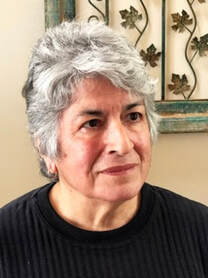 Gloria (Calvillo) Delgado, born and raised in San Francisco's Haight-Ashbury district, is the daughter of a Mexican father and a Hawaii-born Puerto Rican mother. She and her late husband David lived for many years in Albany, California, where they raised their family. One of her stories, “Savanna,” was included in the Berkeley Community Memoir Project's recently published collection, “A Wiggle and a Prayer.” She has had four stories printed in Somos en escrito, including “El Parbulito,” a first-place winner in Somos en escrito’s 2019 Extra Fiction Contest and included in El Porvenir, ¡Ya! - Citlalzazanilli Mexicatl - Chicano Science Fiction Anthology. Recently widowed, she now resides with family in a rural community outside Santa Fe, New Mexico, where she has resumed writing.
0 Comments
The Red Beastby Carmen Baca A careless human act gave birth to the monster. Like any good creators of a living, breathing thing, the people responsible for the debacle came up with a procedure backed by science for success. But sometimes plans go awry; any monster from literature, the arts, or folklore and legends is proof. Plans made far in advance were now outdated, weather predictions ignored. Obeying the command to proceed without weighing the potential outcomes, the crew lost control of the creature before they realized. It flickered to life and licked the dry grass around it, lapping up sustenance to appease its hunger. It grew, spreading its extremities to gather more water-starved vegetation into its maw. The brown, parched weeds whetted the beast’s appetite, and it turned on its creators. The nameless group gave the outcry as they escaped, the alarm echoing from one hill to the next. The flora recoiled and the fauna fled in terrified retreat. The red beast grew and spread and devoured all in its path. It had no plan. Mindless consumption drove it forth. It created new fronts and doubled in size in a matter of minutes. It reached for more food to fuel its advance. 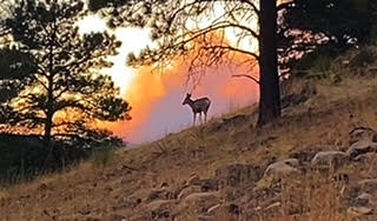 “A few days before we evacuated on April 22.” Photo and caption by Carmen Baca. “A few days before we evacuated on April 22.” Photo and caption by Carmen Baca. The winds blew it farther, in all directions, often shifting from one to the other, morning to afternoon and far into the night. As hours turned into days, it covered more ground. Alarm amongst us rural residents in its way grew as our vecinos, people closer to it, watched it draw near. Surely, the crews fighting it would stop it soon. But the beast created its own weather. Powerful, relentless winds pushed it over more arid earth, growing in acreage, sometimes by the hundreds and later, by the thousands in a matter of hours, as reported by those who sought to bring it under control. Wrapping itself around living organisms and taking the life from them in an instant, the menace spread across the landscape, covering all in black and red. Days later it doubled in size. The 50-70 mile an hour winds sent it forth with ferocity. It created Pyrocumulus clouds which rose over 30 thousand feet, obscuring the blue and roaring over the land with renewed power. TV news reporters stood with tall plumes behind them, signaling the route of the red beast. Their cameramen’s lenses showed us the destruction from several locations, different angles, and points of view from authorities, from the fighters in the battle zone, and from people potentially in its path if it proved unstoppable, waiting for instructions and preparing just in case. Our hearts grew heavy. The beast occupied all our thoughts and so many of our nightmares. It fed voraciously on the forestlands beneath and those surrounding Hermits Peak. Those in command of the fire fight announced the coming days would be catastrophic; the area consumed would grow exponentially with the propulsion of the winds. Those fighting from the skies were forced to abandon their pursuit while those battling on the ground retreated more than they advanced. The intensity of the monster’s hot, fiery breath would have incinerated them otherwise. The morning and evening reports about the swift growth of the red terror struck those of us closest to the path of the enemy. We learned how to navigate several fire maps online, our fear weighing us down and our anxiety burning in our guts as we saw the burned area growing larger by the hour. When it reached the community of Pendaries Village, it swooped down over the pine-covered mountains on either side, enveloping them in its fiery, destructive embrace. The plumes rose in billows of black; then they turned white, and finally brown as they covered the sky. The velocity of the winds gave breath to the fire-head on that day. As though a giant blew out a candle, the flames exploded before they whooshed between the mountains on both sides. Out of control, the inferno fed on the ancient pines and spruces, the fir, conifer, and the wild oak. All disappeared into towers of flames, entire mountain tops of trees glowing red, inspiring terror in all who saw them. Those woodland creatures which could escape fled. The sun glared in a fiery orange ball behind the yellow-brown haze, day after day, enveloping everything in a smothering, poisonous fog. Ash fell and embers glowed. Day turned to night for those closest to the danger. And the now enormous enemy continued to fill its belly with everything in its path, devouring one house here and leaving the neighbor’s over there untouched. The monster didn’t choose its food; its wind-driven route determined which structure it ate and how many of them fed its hunger. The people from the hamlets, the villages, and the rural communities obeyed the orders to evacuate: San Ignacio, Las Dispensas, and Las Tusas first, followed by Rociada and Gascón, our closest vecinos in Tierra Monte several miles away, and us. Only a handful of us remained in Cañoncito de las Manuelitas. We looked the red beast right in the face that day, and we knew we had misjudged. The dense, smothering smoke swooped down over us, forcing us to wear our Covid masks again. As dusk turned into midnight black, we fled in a caravan, surprised to see other residents down the road a few miles had also waited until they no longer could. We joined vehicles merging onto the highway, our line of headlights snaking down Nine Mile Hill to the nearest town, Las Vegas. Those beacons just ahead and closest behind guided us as we crept down the road. Even the red crowns of the tallest trees disappeared into the black of April 22, 2022. A week later, the neighborhoods on the far west side of Las Vegas received the alert to evacuate. The beast had followed us, about four thousand evacuees in total, and now threatened close to thirteen thousand more New Mexican residents. Two colleges in the vicinity evacuated, and the town shuddered in fear that night. Days later, the erratic winds blew the gargantuan southwest toward San Geronimo and northeast toward the communities of Sapello and La Tewa. After another few days, more communities fled. Social media flooded with all manner of posts from photos to videos of flames people shot from their front yards. Glimpses of the red beast from many locations made the national newspapers. As the now enormous monster terrorized so many communities, TV news reporters interviewed those who lost everything, and from their helicopters, cameras panned out to show the world how our landscape went from pastoral meadows and verdant mountain forestlands to miles of blackened, limbless trees standing like tall arrows pointed at the skies, the ground beneath a mix of gray ash and black soot. Homes, barns, and outbuildings which had been in families for decades turned into piles of rubble, many topped with the bent and curled-up tin which had been their roofs. The red beast played a game of Russian roulette with the land, ingesting one section of forest and leaving another over the next hill alive, devouring an entire rural community while bypassing the one beside it. Like Death, the beast was indiscriminate. It felt no empathy for those whose lives it afflicted, feeding itself with their priceless treasures, heirlooms, and family inheritances. It bore no sympathy for the flora or the fauna it consumed. Close to 80 days passed as the monster fed itself, terrorizing the people and the animals in its path. In early June, with over 341 thousand acres of destruction in its wake, it slowed in consumption. Some days it held in containment; other days it grew by several hundred acres. We hoped the end of the nightmare was close. But we also knew it could revive in any location where hot spots remained, those smoldering trunks or burning utility poles, dense material not easily extinguished. The beast, even in pieces, could threaten us once more. It wasn’t likely to return over the already destroyed areas since it sought fuel to reanimate. Our forestlands were burned or badly singed, but our Cañoncito, the valley between the mountains, remained mostly intact the night the fire head swooped over us and left our vecinos in Tierra Monte with nothing. A shift of the winds could bring the flames back upon us. We prayed for the beast to become more subdued by the day until we could draw deep breaths and let the anxiety fall off our bodies. We longed for blue skies and days without rising plumes. For the spirits of our dead, our Antepasados, the devastation proved too much. They, like their descendants, us Norteños, had maintained their faith that the army with its pumper trucks and bulldozers, hot shot crews and smoke jumpers on the ground, and the air tankers, scoopers, and choppers in the air would kill the beast and end its terror. Our dead heard our heartbreak over our inheritance—the ancestral lands and the cherished adobe houses they left us. They heard our combined prayers and succumbed to our despair. Our forefathers cried in the heavens, and the rains fell upon the red beast which had wreaked terror in the four directions and became the largest disaster in the Land of Enchantment. The scientific theory meteorologists offered was that the monsoons came early in June of 2022. We Norteños know the truth. We, the victims of the ravenous monster, touched the hearts of our forefathers with our prayers and our tears of helplessness. We had done nothing to bring the beast down upon us. Nothing. The same people who gave life to the monstrosity known forever more as the Hermits Peak Calf Canyon Fire now warned us we needed to steel ourselves for the next disaster: floods from the burn scars left in the wake of the beast. As though trying one last weapon to assault us, the beast did as predicted. The monsoons fell gentle and steady at first, not in downpours or cloudbursts. The Ancianos in the heavens cried with a quiet sympathy for us, their progeny, and our plight. The tears brought refreshment to the parched earth with a gentle touch. Then the rains turned more fierce and the almost daily flooding ensued, and we knew our Antepasados’ hearts had broken. Their sorrows combined with ours as we watched what had survived the fires now succumbed to the destruction from the flood waters. The red beast had been vanquished after 144 days, but it took out its revenge long after it had breathed its first breath. 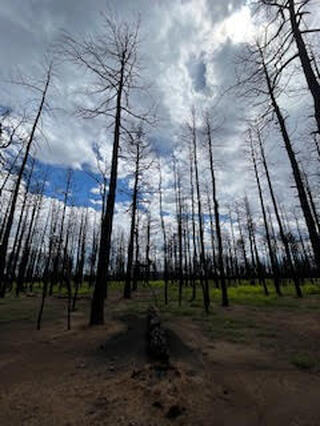 “This is the forest where my stories take place. The green growth is something we’ve never had before. The ground is gray from the ash, soot, and flood water debris.” Photo and caption by Carmen Baca. 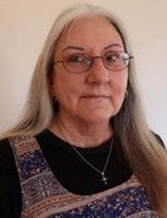 Carmen Baca taught high school and college for thirty-six years before retiring in 2014. Her 2017 debut novel, El Hermano was a New Mexico-Arizona Book Awards Finalist in 2018. Her third book, Cuentos del Cañón, received first place for short story fiction anthology from the same program in 2020. Her latest novel, Bella Collector of Cuentos, was published by Somos en escrito Literary Foundation Press in November 2022 (order a copy here). She has published five books and over fifty short works in online literary magazines and anthologies. She and her husband live a quiet country life in the mountains near Las Vegas, New Mexico, caring for their animals and any stray cat that happens to come by. “Piano”by Linda Zamora Lucero Papa’s funeral, spring 2009. In the tiny chapel are my sister Ellie and her clan from Phoenix, my brother Tito, both of Tito’s ex-wives, and Papa’s best buddies—Montez leaning on his cane, Garcia in his wheelchair, reeking of cigar—both retired welders from Hunters Point shipyard. Papa radiated so much love even my newly ex-boyfriend Julián shows his face to pay final respects. Only Mama is missing. When Tito went to pick her up, she insisted she was too distraught to come. Great, I think, although I don’t believe it for a second. Sure enough, just as the service begins, she materializes in the middle of “Gracias a la vida” in a red coat and yellow hat with feathers. “I don’t need help to sit down!” Mama says, slapping the usher’s hand away. “You’re late,” I whisper, grudgingly making room for her in the pew. Dressed up for Papa, I’m wearing a fitted black dress with tiny hand-sewn turquoise flowers, a Oaxacan shawl, large hammered gold hoops, black hair pinned up. “Hello, Raquel,” Mama says pleasantly, sitting on the fringe of my shawl. “Such beautiful music.” And she commences to hum along with the vocalist. Yanking the shawl loose, I close my eyes and pretend she isn’t there. **** After the service, our family gathers at Tito’s house, where we wolf down plates of homemade chile verde, throw back shots of Herradura and recount the same cherished stories we always do whenever we get together. A favorite is how one Thanksgiving—this was before Mama abandoned us—we children were squabbling over the drumsticks—and Papa asked if he could just this once have some peace around the table. Seven-year-old Tito, thinking he was being real hilarious, smugly handed Papa the bowl of peas, whereupon Papa angrily slammed his fork on the table. We watched in horror as the fork slowly became airborne and cracked the kitchen window. We ate in chilly silence until the pumpkin pie with whipped cream made us boisterously happy again. Tito says, “’Member?” We laugh at the timeworn anecdotes, fall silent with grief. At the ripe age of thirty-nine, Ellie gets up to dance, leading us in a raucous chorus of “Papa Was a Rolling Stone.” Missing Papa’s delighted belly laugh at his youngest daughter’s antics, I suppress a shuddering sob. Ellie’s kids bickering over a toy feels like the saddest thing in the world. Tito brings Mama a cup of té manzanilla and fusses over her. She eyes the proceedings from a corner armchair, the feathered hat like some ridiculous canary atop her head. She’s on her best behavior. Of course, it doesn’t last. Barely three weeks pass before the director of the Thirtieth Street Senior Center calls me at Galería Libertad, the community art center I direct, asking to meet with Mama’s family, meaning Tito and me, since Ellie is safely back in Phoenix. Thirtieth Street is where Mama eats lunch on weekdays, takes piano classes, and is an active member of Mr. Topper’s Mission Tappers, no tapper under seventy-five. Before he died, Papa spent his Saturdays playing poker at Thirtieth Street. “I realize this is a difficult time, so I do apologize,” Mrs. Whitmark says, her lipstick pomegranate pink. She pauses, looks up through bifocals, and an all too familiar despair washes over me. To most people, Mama is an eccentric elder with a mind of her own. Some of us know otherwise. “Mrs. Flores is accusing people of stealing from her purse. Everyone is suspect—the other seniors, the janitors, the cooks, even myself. It’s quite upsetting. Your father helped calm her whenever she got this way, and now we need her family to step in.” “Of course,” Tito says, nodding. “We’ll talk with her.” Tito is a machinist for the transit system. He’s completely overbearing, but somehow women find him fascinating. He’s been married twice with no children, while I can’t seem to find my match, romantically-speaking. Tito has no idea what I do at Galería Libertad. He teases me by introducing me to his friends as “my sister, the starving artist,” and he’s not far wrong. But in the Mission arts community, I have found friendship, love, sustenance. My home. “Losing Dad hasn’t been easy for Mom,” Tito continues. I love my brother, but when it comes to Mama, he ticks me off. “She’s crazy,” I say flatly, brushing a strand of hair from my eye. After Papa’s funeral I’d shorn my long hair into an asymmetrical what-I-hoped-was-stylish cut. Tito shoots me a foul look. But crazy explained my mother who, one ordinary morning after Papa had gone to work, made us children breakfast and sent us off to school, then took a train back to her hometown in New Mexico. To stay. Tito was ten; Ellie, six. I was twelve. In the chaos that followed we all pitched in to help Papa with shopping, cooking and housekeeping. That was the easy part. After Mama left, Ellie suffered from debilitating headaches and Tito was suspended from school every other week for one thing or another. Papa began drinking heavily. There was no one to turn to. My parents had grown up in New Mexico, but we were born and raised in San Francisco in four rooms on Shotwell Street, miles away from kinfolk who gossiped about the neighbors, shushed children at weddings and offered solace when worlds shattered. I was raw with anger at Mama, praying that she’d return to us, declaring that she wouldn’t dare. “Maybe,” my best friend Anna said, “she ran off with a lover.” Prone to dramatic flights of fancy, Anna with her black cat’s-eye glasses concocted wildly romantic stories about our favorite middle school teachers. Now she had one for my mother. Maybe you can just shut up,” I said. A weak response, but heartfelt. Crazy explained Mama’s sudden reappearance in San Francisco five years later. That was the first time a social worker told us Mama was “mentally and emotionally unstable.” But I knew he meant crazy, and for that I was grateful. It explained her crying jags, her periodic paranoia, her denials that she needed help, her refusal to take prescribed medication. Crazy summed it up. In Mrs. Whitmark’s office, Tito loudly clears his throat and promises that he will get Mama to take her meds. “Good luck,” I say, grabbing my daypack. Tito is uncharacteristically silent as we leave Thirtieth Street, his broad, good-natured face splotchy. As soon as we reach my beat-up Toyota, he lets loose. “You were out of line, Rocky, calling Mom crazy! She’s our mother!” Tito and Mama wrote each other regularly after she left. She worked in a café near Taos, and, as we found out later, had reconnected with a high school flame. I was horrified. Tito and Ellie visited her summers, but I refused. When Mama returned, my siblings were elated, being younger and obviously needier than I was. In the five years she’d been gone, I had become 100% Papa’s girl, Athena sprung from Zeus’s head, full grown and battle-ready. Papa never dissed her, but I held her responsible for his alcoholism, his melancholy, for all of us having had to answer endless questions from teachers, busybody neighbors, and shitty strangers who felt sorry for us. Because what’s more pitiful than motherless children in a strange land? So when Tito says, “She’s our mother,” I say, “You’re entitled to your opinion, Tito. I have to go. We have an exhibit of Cuban posters opening in a week.” “Weird haircut,” he snorts. He gets into his car and peels out, as if he were sixteen instead of forty-one. I burst out laughing as his Midnight Blue Chevy leaves fat skid marks on the asphalt. The next time I see Tito, I’ll ask about his prize roses. We Flores don’t say Sorry, even when it’s called for, or a straight-out up-front I love you, even though we do. After an argument, when one of us asks about the weather, it means I’m over it. Dancing salsa after a backyard barbeque means I love my family, or I love the whole fucking world and everything in it. Things go unsaid for days, even years, the love, anger or sorrow pent up inside like a great accumulation of molten lava below surface, wanting release. It’s the Flores way. Friday evening, I’m at home on the computer, writing wall text for the exhibit, half listening to Jeopardy. The category is “Shakespeare,” the answer is “Doubtful Dane.” My cell buzzes—Ellie in Phoenix. I ignore it. We used to watch Jeopardy, Papa and me. He admired Alex Trebek. Debonaire, brainy and not above showing it. A contestant hits her buzzer and shouts “Who is Hamlet?” On Ellie’s third call, I answer, muting the TV. “Mom’s not answering her phone,” my sister says. “I wasn’t answering my phone either,” I chuckle. Ellie ignores me. “Mom was perfectly fine yesterday—Tito says she’s taking her meds, but now I’m worried.” Usually, Ellie asks about what’s happening at the Galería, or about my mostly pathetic, sometimes hilarious dating forays in the six months since I broke up with Julián. Not this time. “Have you seen Mom since the funeral?” On television, Alex Trebek’s lips announce Final Jeopardy, inspiring looks of consternation in the contestants. The category is “San Antonio, Texas.” “Remember the Alamo?” I ask Ellie, wishing she didn’t live so far away. I miss our sisterly heart-to-hearts over her homemade biscochitos and wine. “Come on, Rocky, would you just get over there and check on how she’s doing? Tito’s in L.A. this week.” I sigh loudly, meaning yes. “Great! Love you!” she says, and hangs up. And the burden shifts to me. Mama lives in the same paint-peeling, rent-controlled Edwardian flat we were raised in, located in the heart of the Mission—what the realtors gleefully call “a neighborhood in transition.” No doubt. Since 1492. The door cracks open. “Hi.” I slide my foot inside before Mama can decide whether or not she wants a visitor. “It's me, your daughter.” “I know.” Hazel eyes peer up at me through huge red eyeglass frames. Mama is queen of her private little planet. She’s wearing a crimson apron with gold rickrack trim over a blue sweater shot with silver on top of a fuchsia dress. Purple leggings, lambswool slippers and a silver “Hottie” pendant complete the look. We are nothing alike. Born in the history-rich Abiquiú, New Mexico, Mama grew up speaking Spanish but she looks like a gringa with pale skin, auburn hair, light eyes like a wary cat. I’m dark like Papa, and proud of it. His first language was also Spanish, but his maternal grandparents were Taos Pueblo. I dress in black: turtleneck, jeans, boots. I do rock the earrings, however; the showier, the better. Today’s earrings are humongous crimson Lucite hearts, a gift from a Oaxacan artist. “What happened to your hair?” Mama says. “Why don’t you answer your phone?” I counter. The flat smells of Papa’s Tiger Balm and tobacco. I have to stop and catch my breath. “What’s wrong with you, fighting with me already?” Mama looks down the street before closing the door. “I thought you were someone else.” Her tone sweetens. “How are you, anyway, Raquel?” An ordinary question in an affectionately maternal voice, perfectly calculated to derail me. She does this every so often, and when she does, my heart flips like a kite in high wind, and I wonder what it would be like to have a real mother. Would we go to museums together? Would we shop for shoes, get our nails done? What do regular mothers and daughters do? The question slams into me whenever I run into girlfriends with moms, enjoying themselves. Mama hadn’t been there to help me buy my first bra or see me win first prize in a high school art contest. There was more I’d missed, things more profound. I just didn’t know what. The hallway is piled with boxes. “What’s this?” I ask. “I called Goodwill, but they’ve gotten choosy…your father kept everything: clothes, magazines, rusty tools.” A wave of fear hits me. “Goodwill? Where’s his brown suitcase?” Blood thunders in my ears. I catch a glimpse of myself in the hallway mirror. I look exactly the way I feel, bug-eyed and off-kilter. “There’s more in the garage. Not interested in old junk. Old junk, old men, old ideas.” Mama laughs, apparently delighted with herself. Old junk? “Please, please, don’t give anything away! I’ll get Tito to bring his pickup next weekend and we’ll take it all.” She disappears into the front room where the furniture—sofa, coffee table, Papa’s La-Z-Boy—has been moved against the walls. She pulls aside the lace curtains on the bay windows and looks out to the quiet street. “The piano should be here by now.” “Piano?” She doesn’t need a piano. Tito gave her an electric keyboard on one of her birthdays. It’s programmable, so that she can play tango, classical or her pop favorites. Papa would read his detective novels in his recliner, foot tapping while she plinked out Beatles tunes note by note. I never understood why he took her back. “Respect your mama,” Papa admonished me when I gave her attitude. “No matter what, she is your mother.” Respecting Papa, I shrugged. I was seventeen when she returned to Shotwell Street, my eyes were already focused on college and the wider world. Turning from the window, Mama says, “Can I borrow ten dollars until Friday?” I dig into my bag and hand her a ten and a twenty. “Just keep it.” I feel vaguely virtuous, giving her something without begrudging it. “I said borrow, Raquel, and only ten until Friday when my social security arrives.” The folded bill disappears into her apron pocket. “Whatever. I’ll have some water and then I’m out of here.” Running the faucet in the kitchen, I check for signs to report to Ellie. Cereal bowl in sink, oatmeal encrusted. Golden moth orchids I’d bought for Papa at the Alemany Farmer’s Market, shriveled and fallen onto the windowsill like exploded firecrackers. Portrait of the recently-elected President Obama. Wall calendar from La Palma Mexicatessen, inked Xs marking the days. Today is April 6. No X as yet. Mama is right on my tail. “I pay my debts. I’m not like that Julián of yours. He still owes me money.” Here we go. “Jeeze. It was change for a parking meter.” I feel my temperature rise. “I’ll repay you! And you can forget Julián because Julián and I are not together!” Papa’s eyes got cloudy as he aged, but not Mama’s. Her eyes are like new-minted dimes, bright with gotcha. “I don’t forget. Julián shouldn’t be borrowing from old ladies. I’m glad you’re rid of him. It’s better to be alone, Raquel. You’re smart, like me. The smartest of my children.” I’m floored. Mama has never expressed the slightest interest in my life or anyone else’s for that matter. Although mortified by the comparison, I can’t help being flattered that she considers me the smartest. “So,” I say, softening. “You’re renting a piano?” Her arms fold defensively. “It was on sale.” “You bought a piano?” Baffled, I pull out a chair and sit at the kitchen table. “For my music lessons, Raquel.” Still standing, she bristles with nervous energy, her pendant flipped so that it reads “eittoH”. “What about the keyboard Tito got you?” “I need a real piano. Besides, Tito steals from me.” Yup. Genial to eccentric to crazy at maximum velocity. The woman who brought me into this world is fundamentally incapable of being the mother I long for. I know this in my heart, in my brain, in my gut, in my very pores, and yet she gets me every time. I rise to tighten the dripping faucet, then turn to face her. “Look, Tito’s here every weekend, and when he can’t, he calls to see how you’re doing,” I say, defending my brother. “Why do you give him such a hard time?” A better question is why am I trying to reason with her? “You know damned well I can’t trust him.” I take slow, deep yoga breaths. Do not engage. Do not engage. Mantra for Mama. Outside, a vehicle rumbles to a stop. “It’s here!” she says. I follow as she rushes down to the sidewalk, patting her hair in the mirror on her way out. A deliveryman in a maroon jumpsuit strolls toward us from a double-parked delivery truck. “Piano?” he asks me. He has sleepy eyes, a pencil-thin mustache, a clipboard. “You’re late!” Mama says. “Sorry, ma’am.” He tips his cap back. “I’m Jesse and that’s Murphy.” Murphy is pulling a ramp from the back of the vehicle. Mama ignores Jesse’s proffered hand. “Where does it go?” he asks me. I blink, smiling. “I’m just an innocent bystander.” “Up here,” Mama interjects, leading us up the steps and into the living room. “You ordered a Yamaha grand?” Jesse is finally addressing questions to the right person. “Ma'am, we get a nine-footer in here and you won’t have room to sit down and play.” “There must be a mistake,” I say. “I don’t need much room,” Mama says, shooting me a dark look. “Move, Raquel, you’re in the way.” So be it, I think. I’ve always been in your way, we all have, Papa, Ellie, Tito. You could have continued therapy, taken the pills, and avoided the crises that your family—not that you recognize us as family—have had to rescue you from over the years. Selfish, selfish, selfish. I back myself against the hallway wall as the movers expertly rotate the piano to make the tight turns. Well, I’ve done my duty. My report to Ellie: Mama is alive. Mama is well. Mama is impossible. “I’m coming back this weekend for Papa’s stuff,” I say, “and will you please answer your telephone? Because Ellie and Tito worry about you.” As I take off, I hear Mama telling the deliverymen, “There’s ten dollars for you when you’re done.” **** On Sunday Tito is wearing his annoying “I’m just a regular vato from the barrio” get-up—Ben Davis work pants and his “Stay Brown” t-shirt from the San Jose Flea Market. We’re both wearing Giants caps. The sun is out, there’s a game this afternoon. I’m anxious to get back to the Galería where volunteers are painting the walls. “We’re here for Papa’s things,” I say, when Mama comes to the door. She is channeling Cher today: red tunic, shaggy vest, ankle boots. Gray wisps escape a blue-sequined beret the size of a small pizza. “God, open a window! Aren’t you hot?” “Leave me be, Raquel. You know I’m always freezing,” she says. “I'll make coffee now that you're here, Tito.” My brother is definitely her favorite child. There are times I believe he is the only person in the world who can get through to Mama, but when I really think about it, I shake my head, No. Because after his visits she accuses him of stealing and she cries. Always. “Momskh!” Tito says, draping his beefy arm around her shoulder, “Where’s the pianoskh?” Mama’s eyes light up. Tito has invented this Russian-esque language just for her. “Who told youskh?” she giggles, leading us to the living room. Tito halts theatrically in the doorway, throws his hands up in wide-eyed astonishment, “Whoa! That’s some piano!” The piano is impressive, gleaming ebony, padded leather bench tucked underneath, filling the room like one of those clipper ships crammed inside a tiny glass bottle. “What do you think?” Mama is giddy. “What do I think?” Tito bellows. “What do I think? Takes up a lot of space!” Somehow this is the right answer. Mama practically squeals with pleasure. If there were room she’d be pirouetting around the piano. “It's ridiculous,” I say, addressing Tito. “If she needs a so-called ‘real’ piano, which I doubt, a used upright makes more sense.” Tito’s look tells me to can it. “This is a piano for professionals,” I emphasize, unable to help myself. I’m the director of a community arts center. I believe that everyone has the capacity to make art, to enjoy a creative life. This is my work, yet I can’t manage to extend this value to Mama. I feel like a miserable imposter. “I love it,” Mama says, defiantly. “Play us something, Mom!” Tito doesn’t have to ask twice. Mama climbs onto the bench and sorts through dog-eared sheet music. She begins playing “De Colores” and Tito, leaning over her shoulder to read the lyrics, sings with her. Both are seriously off-key. I escape, taking the kitchen stairs down to the backyard where weeds are suffocating Papa’s tomato plants, and enter the garage from the side door. Underneath the floorboards, the caterwauling is mercifully muted. Papa sold his car awhile back, so the garage is now storage space. I wade through boxes and furniture before I find what I’m looking for: Papa’s brown leather suitcase. Wrenching it free, I wipe the cobwebs with an old t-shirt and sit cross-legged on a box, my heart at peace. The tarnished metal fasteners make a satisfying pop. Lifting the lid, the faintest scent of tobacco in the yellow silk lining sweeps me back to another time. It must have been fall. The living room windows were dripping condensation. Mama had been gone a year. I was still crying myself to sleep. Papa set the suitcase on the coffee table. “Let’s see what we have here,” he said, a cigarette in one hand, a can of beer nearby. His hair was still coal-black, but he was starting to get a paunch. He’d drag out the suitcase now and then, often during the holidays, to show us his treasures—a jumble of photographs and souvenirs—a pretext for his stories of back home. That day it was only me sitting by his side on the worn sofa. I reached for a sepia-tone studio portrait of an elegant native woman in a 1940s fur coat. “Who’s this?” I knew the story by heart, but I never tired of his stories of wicked uncles and chain-smoking grandmas, homesteads and adobes, farmers and dressmakers, sheepherders and coal miners, pueblos and penitentes, trains, abductions, adoptions, fires: tales of love, tragedy and survival reaching back across generations to New Mexico Territory and beyond. “My first cousin Josie, on my mother’s side. She had a tailoring shop in Santa Fe. She was a sharp cookie, married and widowed three times, the last husband a Navajo. She liked them young but it didn’t matter. They still died on her.” We chuckled. I pulled up an unfamiliar snapshot of a couple picnicking on a blanket at Ocean Beach, the Cliff House in the hazy distance. “And this one?” A shadow crossed Papa’s face. With a sinking heart I recognized my youthful parents in a happier time. Silence flooded the room. Papa’s thoughts seemed to alight on something not in the picture, the ashes on his cigarette trembled. Finally, he smiled, seemingly chagrined by his thoughts. I switched the photo for one of Papa as a boy and his older sister posing in front of a Ferris wheel. “I wished I’d known Auntie Rose,” I said. Papa never returned to New Mexico after he and Mama moved to San Francisco—his immediate relatives had moved away or died by then. If there were other reasons, he never shared them. “You remind me of Rose, mi’ja,” he said. “Sparky as hell.” Besides photos, there is a ledger of the early 1900s written in Spanish and English, discharge papers, faded postcards from distant relations we children never knew, yellowed newspaper obits, a ruby ring won in a poker game, a ring neither ruby nor gold. This is what I came to rescue from Goodwill. My father’s life in a suitcase—all we have left of him besides his stories etched into our memories, tales that kept our family tethered to our history, to this land, to each other. I secure the suitcase, one snap at a time, and haul it up the back stairs to the living room where Tito and Mama are hammering out “That’s Amore.” Tito insists on getting burritos and a six-pack for lunch. We dine on the kitchen table of our childhood, while Tito tells us about his new lady friend, a teacher. Mama tracks his every word, the better to throw in his face one day. Tito is oblivious. Someone in the building has the game on, radio turned full blast. “The bases are loaded with two men out! Herrrrrre’s the pitch!” When we were kids, listening to the Giants with Papa was the best. Halting in the midst of whatever we were doing—peeling potatoes or washing the car—to visualize the players at the ballpark, we held our breaths, waiting to hear Jon Miller yell, “The ball is up, up…it’s out of here!” My spirits lift remembering how we’d yell and high five each other. Then the heaviness in my chest returns. I claim the suitcase when it’s time to go. The rest of Papa’s things will go into Tito’s garage until Ellie can come out to help sort it all. On the sidewalk, Tito stretches and grins. “Mom’s doing okay,” he says. “We’ll just have to check in on her more often.” “Do you know what a piano like that costs?” Tito’s smile vanishes. “Don’t worry about it, Rocky, I got it covered.” “She can’t wait to get rid of his stuff.” “You can’t know how anybody feels except for your own damn self.” Tito’s voice is hard. “Mom does the best she can. You’re past forty. Is this who you want to be? We grew up with her too. And what’s with that haircut?” Glaring at my brother, I slam the trunk lid closed and get into my car. Wiping away tears, I turn onto Valencia Street, glad to be heading to the Galería. Three signal lights later, I realize I’ve forgotten my Giants cap and make a U-turn in the middle of the street. On Bartlett I drive by two little girls playing hopscotch on the chalked sidewalk like Ellie and I used to do, and pull up in front of the Lermas’ building that has a For Sale sign. Sal is sitting on the stoop, drinking beer and listening to oldies on KPOO. “Hey Rocky. Sorry about your father,” Sal says, as I exit the car. “We lost a good man.” “Thank you.” I’ve known the Lermas since forever and wonder whether they’ve found a place to move to. Before I can ask, I’m distracted by the faint sound of music coming from Mama’s flat. I climb her stairs and peer through the open bay window, past the lace curtains, where she sits half-hidden behind the big, lacquered instrument. Her fingers strike the keys as she squints through her enormous, red-framed glasses at the sheet music, her voice tentative. “Sweet dreams till sunbeams find you…” The playing is measured and precise. The voice not so much, even as it picks up tempo and exuberance. “Sweet dreams that leave all worries far behind you…” I take a breath as my heart unexpectedly catches on a surging memory of Mama sitting on my bed when I was a girl, singing me to sleep. Cozy in pajamas, bed covers pulled up to my chin, lulled by her voice, drowsy. Back when she was still my Mama. “And in your dreams, whatever they be…” Mama warbles with joyful enthusiasm. The afternoon’s heat has eased. Rising above the ambient sounds of the street—a plane overhead, a skateboarder rolling past—is my mother’s voice falling in and out of tune like a kid learning to ride a two-wheeler. Mama in her blue-sequined beret is swaying, creased fingers moving over the black and white keys of the piano, focused on the task, determined like all of us to catch beauty in this precarious life. The sound of the music awakens a raw tenderness in me, if only for the moment. Brushing unexpected tears from my eyes, I sink onto Mama’s front steps to listen.  Linda Zamora Lucero is writing a collection of short stories set in San Francisco’s multicultural Mission District where she was born and raised. She identifies as Chicana, and attended Mission High School, City College of San Francisco and SFSU. Her published short stories are: “ZigZag,” LatineLit Magazine, 2022; “Speak to Me of Love,” first prize winner, DeMarinis Short Story Contest, Cutthroat: A Journal of the Arts, 2021; “When It Rains,” Yellow Medicine Review, 2020 Pushcart nominee; “Mexican Hat,” Puro Chicanx Writers of the 21st Century 2020 Anthology; “Balmy Alley Forever,” Yellow Medicine Review, 2016; and “Take the Money and Run–1968,” Bilingual Review, 2015. Lucero's day job is directing the Yerba Buena Gardens Festival, an admission-free outdoor performing arts series in San Francisco. Mrs. Reed’s Christmas Treeby José Antonio López In addition to sharing our early Texas history with others through my Rio Grande Guardian online newspaper articles, I also wrote about growing up in El Barrio Azteca in Laredo, TX, such as the example below, first published on December 24, 2013. It describes the time when I first learned of the special Gift of Giving during the Christmas season, and whose message still applies today. Wishing you and yours a very Merry Christmas (Feliz Navidad) 2022. For most people, childhood Christmas memories serve as imaginary gold nuggets treasured for a lifetime. One of these gems is also my earliest recollection of when I first learned the true meaning of Christmas giving. It was 1953; I was about nine years old and in Third Grade at Central School in Laredo, Texas. Mrs. Reed was my teacher. Authoritative, yet warm and friendly, Mrs. Reed was a classic elementary school teacher. Effective and practical in her no-nonsense approach to teaching, she constantly challenged us to learn. In her classroom, “Eyes and ears on the teacher” was the rule. A few days before the Christmas holidays vacation, she would purchase a small Christmas tree and placed it in the middle of one of the classroom work tables. She also bought the tinsel and garland. Then, each student in class was asked to donate one ornament. They could either make it in class or bring one from home. Trimming the tree was an extra treat for us students. As a reward for good behavior, she allowed us to help her adorn the tree, which was done a little each day. By the time we had our class Christmas Party on the last day of school, the tree was finished. Not all teachers went the extra mile. So, after lunch on that special Friday, teachers formed a line outside our classroom and brought their students to view and admire our creation. Barrio El Azteca was mostly poor blue-collar. Most of our neighbors were hard-working day-labor folks and migrants. They arose before day-break and returned home at nightfall; dead tired after their day at a building site in town or working at one of the area’s ranches and farms. The next day, they did it all over again. Their pay was dismal; and employment for day laborers was erratic. Knowing that Christmas trees were a luxury in some children’s homes, Mrs. Reed responded with her own style of kindness. During the last day of school, she put all our names in a bag. She then asked a fellow teacher to pick a name from the bag. The student whose name was drawn won the Christmas tree. More than anything that particular Christmas, I prayed that I would be the lucky winner. Having overheard my parents a few days earlier, I knew money was tight in our monthly budget. It seemed that they might not be able to buy a Christmas tree for us that year. That’s not to say that our house wouldn’t be decorated for the season. Mother always did a great job decorating our home with very limited resources. Too, the center point inside the house was a small Nativity set in the living room. Yet, the spot reserved for the tree was empty. So, it was with great anticipation that I welcomed the last day of school before our Christmas break. The Christmas Party was well underway that afternoon, when all of a sudden, I heard my name called. I couldn’t believe it. I had won the prize. When the dismissal bell rang, I asked Bernardo, a classmate, to assist me in carrying it home. He agreed. Mrs. Reed helped us remove some of the breakable ornaments and she put them in a small box. As soon as we reached the outside of the school building, every step of the way became difficult. First, we had to maneuver a steep stairway in front of the school entry. In one arm, Bernardo carried our notebooks and in the other, the small box with the ornaments. I carried the tree still sporting the tinsel and garland. Second, balancing the tree upright in front of me, my view was very limited. Walking on the unpaved, gravel, street was tricky. So I walked on level ground, avoiding any large rocks that might make me fall. A slight wind was blowing and small bits of tinsel were dropping off the tree, marking our way. We were a sight to behold! Our house was about six blocks from Central School. Bernardo’s house was half-way to mine. So, before we knew it, we had already walked the three blocks to his home. I placed the tree on the ground and waited for him to drop off his school books and tell his mom he was helping me get home. After a moment, his mother walked out to admire the tree and went back inside. It was then that I realized Bernardo’s home didn’t have a Christmas tree. Suddenly, a hard-to-explain powerful feeling overcame me. I asked Bernardo to open his front door. Before he had a chance to ask why, I carried the tree inside and placed it by the front window. Hearing the commotion, his mother walked out of the kitchen and I asked her if she would like to keep the tree. She was stunned, and began to weep. She gave me a big hug, nodded “yes”, and thanked me. Then, I helped Bernardo put the ornaments back on the tree. It immediately brightened up the room. As I left, the two of them were quietly standing admiring their beautiful Christmas tree. When I got home, other kids had told my mother of my winning Mrs. Reed’s Christmas tree. As soon as I entered our home, Mother asked me where it was. When I told her what had happened on my way home, she began to cry just like Bernardo’s mom. Mother gave me my second big hug of the day. She then called Dad at work and told him what I had done. My father, a stern man of few words, but possessing a big heart himself, approved of my charity. That evening, he returned from work with a Christmas tree strapped to the top of his car. In summary, I tell this story to focus on the plight of today’s needy. Having lived the experience, I am in a position to say that poor people don’t enjoy being poor. Nor are they lazy. That is why they don’t deserve the unkind treatment they receive almost daily from politicians and some news commentators. The fact is the poor are in a never-ending struggle to improve their quality of life. They only ask for a compassionate helping hand to grab onto the next rung in the ladder of success. This Christmas let’s all be part of the solution by helping them do it. 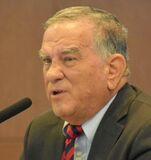 José “Joe” Antonio López was born and raised in Laredo, Texas, and is a US Air Force veteran. He now lives in Universal City, Texas. Joe is the author of several books. His latest is Preserving Early Texas History (Essays of an Eighth-Generation South Texan), Volume 2. Lopez is also the founder of the Tejano Learning Center, LLC, and www.tejanosunidos.org, a website dedicated to Spanish Mexican people and events in U.S. history that are mostly overlooked in mainstream history books. Memories of a Mexican Boy From El Paso: Making It at the University of Texas in the 1960s by Daniel Acosta, Jr. Prologue With apologies for confiscating a part of Norman Podhoretz’s memoir title for my own use, I knew when I started the three-year B. S. pharmacy program at the University of Texas in the fall of 1965 it was make or break for me. I had no close friends in high school and never had a date. I was not entirely a loner in high school; I talked to my classmates and acted friendly. It was not until my junior and senior years that I joined a few school clubs and became more involved with activities I enjoyed, such as the Science Club and the Chess Club. Academically, I did well at Austin High School; I graduated as one of the top seven students in a class of 330 students—four white males, two white females, and me, the lone Mexican American. In 1963, Valedictorian and Salutatorian students were not selected for the first time in El Paso high schools; instead, the top 2% of the class were honored at graduation. I never learned who was number one. Two weeks after graduating from high school, I was on the bus to take me to my freshman classes in English and American History at Texas Western College in the summer of 1963. The so-called “high school on the hill,” which us Mexicans dubbed the College, was our first real chance to experience the college experience. TWC is really a beautiful campus, if you like the desert with colorful cacti and mesquite bushes and limited trees and grass. The small, jagged foothills of the Franklin Mountains near the campus add to its beauty—and thus its nickname. The architecture of the buildings is quite unique with a strong Bhutanese influence—distinctive, red-tiled roofs. Many of the graduating Anglo students went to more glamorous schools away from El Paso. Beginning College For the next two years I caught the early morning Beaumont bus on Piedras Street a block away from my home. The bus went south down Piedras to Five Points, where there was a Sears for shopping and the Pershing Theater. Throughout my early teens I spent many Saturday afternoons watching many B westerns and crime movies. In June 1963, now that I had graduated from high school, I was ready for a better class of movies to see. I remember vividly the first showing in El Paso of Cleopatra with Elizabeth Taylor and Richard Burton at the Pershing. I had read in the El Paso Times that this Hollywood epic was a movie to not be missed—it had Taylor and Burton who were having a torrid love affair during the making of the film. Eddie Fisher, the famous pop singer, divorced Taylor soon after the movie was released. Because their affair was in the news on a nearly daily basis, I knew that I had to see the movie. I got to the Pershing about two hours early to wait in line for a ticket. By the time I arrived there was a long line of people. I saw a group of high school girls who were laughing and waving to their boyfriends to come to the front of the line. “Johnny, did you bring enough money to buy the tickets? Hurry up, we saved some spots for you in line,” yelled one of the girls. As three of the guys pushed and shoved to get to the girls, other people in the line screamed for them to get back to the end of the line. This got the attention of the security guards who rushed to grab the guys and moved them away from the loud and angry people. Eventually things quieted down and people waited patiently to get their tickets. That was my first taste of a so-called mob scene. It was really not that much of a thing; it was only people trying to butt into line. It broke the monotony of standing in line and made me more excited to see the movie. I later learned during my summer school classes, the manager of the Pershing, Mr. Miledi, was a part-time chemistry teacher at the College. Everyone called him “No Bugs My Lady,” a popular ad at the time on radio and TV for an insect spray. I remember seeing him in the fall semester when I was taking freshman chemistry. After leaving Five Points, the bus took a right on Yandell Drive heading west to the plaza in downtown El Paso. In the middle of the plaza was a round, waist-high fountain enclosure, which was dry most of the year. It was a big attraction for kids and tourists because a lonely, foul-smelling alligator was stuck right in the middle of the fountain looking for food to be thrown to him. Of course, there were signs warning people to not feed the alligator, but it was done all the time. I felt sorry for the alligator; I did not look at it while I waited for the Sunset bus which stopped at a medical clinic, a few blocks away from the College. On that bus were many maids and yardmen who worked in the more expensive neighborhoods of west El Paso, near the College. When I come to think of it, my college education really began with my observations of people on the buses I took to and from TWC. Because the Beaumont bus began near William Beaumont Army Medical Center a few miles straight north up Piedras, there were a variety of people who used the bus: people who worked downtown in major department stores, banks, insurance offices, etc., and those people from South El Paso who used the bus to get to work at the Medical Center and at Ft. Bliss—one of the largest Army bases in the country. They were mainly Mexicans who did cleaning and yard work for the Army. Tina, my older sister, became a civil servant, and eventually became the executive manager for the main EEO office at Ft. Bliss. I got to know the bus driver, who always asked how I was doing with my courses. After I graduated from pharmacy school at the University of Texas at Austin three years after leaving TWC, I received a draft notice to return to El Paso for my induction into the US Army at Ft. Bliss. A few weeks into basic training, my platoon had to do some training in the desert, and it so happened that the Army bus was driven by the same driver who took me to classes for those two years at TWC. I could only nod to him because the drill sergeant demanded complete silence in the bus. At least, I knew someone from El Paso during my 8 weeks of training. I had received a graduate deferment to attend the University of Kansas to study for a degree in pharmacology, but the deferment was canceled as the Vietnam War intensified in 1968 and more draftees were needed. Seeing the friendly face of my former bus driver every once and while at Ft. Bliss made my training easier and made it easier to accept my fate if I were to be sent to Vietnam. The country was in turmoil and many student protests were occurring on college campuses. I had thought with my pharmacy degree that I could avoid the Vietnam War and be one of the lucky few to not serve in the military. I was not sent to Vietnam; instead, I served my two years at Army medical facilities in Savannah and South Korea. Several of my Mexican high school classmates were not as lucky as me and were wounded or killed in Vietnam. Minorities across the country were the ones who suffered the most during their service in the military in the 1960s and early 1970s. At Texas Western College Now to the story about my other education to get a degree. After much thought and research about what my major should be, I decided without any advice from my family, teachers, or counselors to pursue a career in pharmacy. That was it; I had made my decision on what I wanted to do; and I developed a plan. To receive a B. S. degree in pharmacy, one did two years of pre-pharmacy coursework at any college, such as chemistry, physics, calculus, English, history, biology, accounting, government, and so on and so on. The final three years for the degree were taken at an accredited college of pharmacy, which in my case was at the University of Texas at Austin after completing my pre-pharmacy courses at Texas Western College in El Paso. The other two colleges of pharmacy in Texas during the 1960s were in Houston. One guess why I chose UT. Even back then Austin was the city to live in Texas. Dallas and Houston did not even come close. After graduation from pharmacy school, I would take the pharmacy board exams, pass them, and become a licensed pharmacist in 1968. Easy—right? The two-year pre-pharmacy curriculum at Texas Western College meshed quite nicely with my plans because the expenses would be minimal to cover, living at home. For some Mexicans like me I felt it was a let-down to not attend a college away from El Paso right after high school; instead, we made fun of the “high school on the hill” and mistakenly thought it was degrading to not go to a “real college.” I was so wrong to think that. Texas Western College was one of the best things to prepare me for the rigors of going to “The University” in Austin, as it is known to native Texans. My family did not have the financial resources to help me much with college expenses, such as tuition, books, bus fare, clothes, lunch expenses, etc. I worked four years through high school as a paper boy and had saved several hundred dollars for my first year of college. I knew that I could not go to a college that was away from El Paso. I realized that if I wanted to attend UT-Austin, it meant working 20 to 25 hours week while I managed a full course load each semester. My next-door neighbor, Mr. Bacon, who I’d known throughout my high school years, got me a job at the Data Analysis Center, which just happened to be across the street from the student union and most of my classrooms. DAC did contract work for the federal government on several defense and scientific projects. I did not know what to expect; most of the guys working there were math, physics, and engineering students. I was a pre-pharmacy major, mostly taking biological and business courses to prepare me for admission into pharmacy school two years later at the University of Texas. As I was going to the water fountain in the main work room at DAC, I heard someone yell out at me: “Hey, Danny. My name for you is now Danny Waters,” Tony winked at me. He told me that he had already seen me get a drink of water twice today and that was now my nickname. I instantly liked him; he was charismatic; and he looked and dressed differently than the rest of us. He wore nice slacks (not jeans) and well-ironed shirts. His haircut was very similar to Cary Grant’s and to the guy who played “Mr. Lucky” on TV. He told me it was a razor-cut, and I could not see a hair out of place. He definitely did not look like a nerdy engineer. Tony was in his senior year, majoring in electrical engineering. It turned out in his junior year he ran for president of the student body, and he won. It was very unusual for a junior to win the presidency and be around when the new president began his term of office. I did not think that Tony really knew what it meant that a Mexican guy had been elected over a white guy. El Paso was definitely a town where whites were more prominent in business and government circles. I never saw Tony use his status with others; we Mexicans at Texas Western College were quite proud of him. My freshman year knowing Tony, when I think back over the years, influenced me greatly. I became prouder of my own Mexican heritage. I was a strong supporter of JFK when he was elected President, and especially, when he appointed the first Mexican American mayor of El Paso, Raymond Telles, the ambassador to Costa Rica. Tony always treated me as an equal and not as a young pimply teenager. When his girlfriend was to start graduate school in geology at the University of Arizona in Tucson, he asked if I could help the both of them move her things to Tucson. I jumped at the offer. Just talking with Tony for that whole trip was so memorable. I was shy and introverted. Intuitively I knew that to be successful socially, professionally, and romantically I had to be more willing to engage with other people and become more extroverted. I began to come out of my shell during my two years of pre-pharmacy coursework at Texas Western College, but without a car and having to take a bus to get to campus every day for those two years I was still at a disadvantage. It became an obsession for me to get a car while I attended college, especially when I would go to Austin for pharmacy school. “Danny, how much have you saved to go to Austin next fall?” asked one of my co-workers at the Data Analysis Center on campus. “I can make it through the first year without working at UT but will have to work full-time in El Paso during the following summer to save more money for the second year.” Actually, my plan was to get one or two jobs in Austin while I was attending pharmacy school for the second year of the professional pharmacy curriculum. I had surprisingly breezed through my first year of classes at UT without having to work like I did in El Paso. I had saved enough money to cover my expenses for my first year at UT. I worked the following summer at a pharmacy in El Paso to build up my savings again. I wanted the extra money from these jobs to buy a car in Austin. Would I be successful? Time and hard work would tell. At the University of Texas I learned about two jobs after my first year at the College of Pharmacy through some hungry and poor pharmacy classmates, who, like me, had to work to get through college. As pharmacy students, it was drilled into our minds by our professors that we were part of the medical profession with physicians and nurses, and we had to show those other two professions that we deserved the same respect they received from the public. A few discount pharmacies were starting to pop up in the 1960s; they were considered to be a negative blot on the more respectable and professional retail pharmacies that had dominated the profession for years. One particular discount pharmacy chain that started in Dallas threw salt in their eyes by opening up their first drug store in Austin. Even its name was insulting and looking for a fight—Ward’s Cut Rate Drugs, which was notably located on Austin’s most famous street, Congress Avenue, looking down the throat at the Capitol a few blocks away. It wanted to hire pharmacy students as employees, and it paid good hourly wages. I applied and got the job. One down, another job to go. I was told about a dormitory for rich girls; the pay was non-existent. Not many students wanted to work there if there were no hourly wages. Instead, a student kitchen worker was paid with meals after the girls ate. If I did not have to buy groceries and cook my own food, this arrangement was right up my alley. I took a kitchen job at the exclusive and pricey Hardin House. I now had my food taken care of each month and I was earning good pay at Ward’s. With these two jobs, I was well on my way in saving money for a car. I did what I always did while I attended UT: go to classes, grab meals when I could, work at two jobs, study, sleep and do it all over again the next day. I had an evening job at the Hardin House and later changed jobs to another girl’s dormitory, starting at 6:30 AM. At both jobs, I closely observed how these co-eds, mainly sorority girls, talked and laughed among themselves as if the kitchen student workers did not exist. At UT, I went to my pharmacy classes in the morning, and in the afternoon, I attended laboratory sections in medicinal chemistry, pharmacology, compounding drugs, pharmacognosy, drug manufacturing, and microbiology. The ultimate senior lab—the Prescription Lab—was a simulated drug store where us pharmacy students learned to read prescriptions, fill the prescriptions, catch any mistakes in the prescriptions, and advise the fake patients/customers on how to take their medications and point out any potential side effects. After classes, I ran back to the dorm to get my free meal before I caught a bus from campus to get to my other job at Ward’s, with its prominent location in downtown Austin. As mentioned earlier, my professors said it was disgraceful and unprofessional to work in a discount pharmacy. Did I really care? I worked there about 15-20 hours a week; I was making good money to get my car. I never thought much about working two jobs. I needed the money to survive so I could live in a city that was the envy of other students living in such cities as College Station—Aggieland; Lubbock—Texas Tech; Waco—Baylor; or my hometown of El Paso—the Miners. I won’t mention the other schools in Houston and Dallas. The problem was that I was not able to enjoy the active night scene my first two years in Austin. Because of my work schedule, my social life in college was not spectacular and if you really want to know, it was sub-par. I did not have a car and that put a real damper on meeting and dating girls. I had a major goal, besides getting my pharmacy degree: get a car and live in style during my last year of pharmacy school. It was the penultimate year that was a bear to endure, but I was getting closer and closer to getting my car. The Hardin House I should talk more about my job at the Hardin House—that exclusive dorm for co-eds that parents paid big bucks to have their daughters fed and protected while they attended the mostly white University of Texas. There were a few Black students at UT in the 1960s. The percentages for Hispanics, mostly of Mexican heritage, were in the low teens. It is now around 23%. I was hired by the head cook, a wonderful Black woman who deeply cared for her student workers and treated us with respect. I looked forward to working each night to hear stories about her life, and she really liked to joke around and laugh with us. However, a few months later a dining room manager was hired to run the entire dining experience at the Hardin House, including the kitchen and the fancy dining room for the girls and their guests. When she was in the kitchen, there was less talking and laughing. I eventually had a run-in with her. Working in the kitchen was sometimes hard and dirty work. The other student workers were at the Hardin House because, like me, we needed the money to attend the great University of Texas, or as stated in the Texas Constitution—a World-Class University! I was the only Mexican student in the kitchen, and the other workers were white and came from small towns in Texas—they did not receive much financial support from their families to make it through college. As a joke, my roommate, Jim, gave me a copy of George Orwell’s Down and Out in London and Paris, with its classic description of what a kitchen “plongeur” did in the bowels of an expensive hotel restaurant in Paris. My kitchen job at the Hardin House did not compare to Orwell’s experiences, but there were several times I was down on my knees cleaning out the grease trap under the sink and removing clogged food from the disposal so it could start working again. Unlike the “plongeurs,” we Hardin House kitchen workers had a fancy dish washer to help us with washing the many dirty pots and pans and dishes. Mopping up the kitchen floors was somewhat enjoyable because we knew that a delicious meal would be waiting for us after our work was done. The head cook prepared marvelous meals for the girls and staff. I can honestly say that the kitchen was relatively clean and hygienic and did not compare to the filth described by Orwell at the hotel restaurant kitchen. When it became very busy at mealtime, I was sometimes asked to serve portions of the meal to the girls. “Good evening, which entrée would you like—the roast beef or the Chicken Parmesan,” I asked with a goofy smile or at least it was a fake smile. One evening, the manager caustically remarked that these girls did not know how good they have it: “Here is one girl who asked for a full dinner plate of food, and she barely touched any of the food. What a waste.” Not realizing it was a rhetorical remark, I replied: “her parents paid good money to have their daughter live at the Hardin House and she can really do anything she wants with the food.” She glared at me and walked away. The manager often stood behind us servers, making sure that equal portions were correctly given to each girl. When all of the girls had been served and had finished their meals, the kitchen crew picked up remaining plates, cleaned the tables, and swept up any food scraps under the chairs and tables. Then we feasted on our meals at a table in the back of the kitchen. I tried secretly to sneak out a second dessert to eat later at my apartment, but I was caught by you-know-who. I was instantly fired on the spot; she got her revenge. My favorite singer, Frank Sinatra, was singing his hit song about the time of my firing: “That’s Life: You’re riding high in April, shot down in May…” After I was fired by the manager, I found another job at another rich girl’s dorm; did you really think that I would now have trouble buying my car? The kitchen student workers were allowed to sit in the main dining room at a table reserved for us lucky dishwashers, bus boys, and servers. We had to be more careful with our conduct in front of all those very attractive co-eds. My ’67 Mustang After two years of working and saving my money, I was nearing the end of my patience with not having a car. I had saved a good sum of money but was still not able to buy a new car outright. I did not want a used car. What made the difference was that I received a full scholarship for my final year of college. It paid to have excellent grades. In the 1960s, to receive the scholarship money the student had to be in good standing and show proof of enrollment. When I showed the foundation that information, I received the check. I could do whatever I wanted with the money—presumably quit my jobs and concentrate on my studies and use the money for tuition and living expenses. Instead, I used the scholarship funds with my savings to purchase outright a cool, sky blue 1967 Mustang, four on the floor—a classic if I had kept it! There was no need for monthly car payments, but I had to continue to work my two jobs to pay my living expenses, which now included gas and car insurance. I filled up the car at Shamrock’s, which gave free glasses for a full tank. I bought the car in the summer before I went back to work at the Hardin House in the fall. I was now ready to party. However, before I could start driving, Jim had to drive the car off the dealership lot because I did not have a license and did not know how to drive a manual. After a monthly ordeal of Jim teaching me how to drive, I took my driving test at the Texas Department of Safety on Lamar Avenue a couple of miles from campus. I passed on my first try. Jim and I were casual friends in high school, and because both of us were in pre-pharmacy at Texas Western College, we decided to room together in Austin to cut down on our living expenses. Unlike me, he dated a girl before I had my first date, and they soon fell in love and wanted to get married that summer. Minnie had a family in San Benito (in the South Texas Valley) and went home to tell her parents about her upcoming marriage. A few days later, Minnie asked if Jim could help her with her possessions she had at home. I was recruited to be the chauffeur and eventually the best man at their justice of the peace wedding back in Austin. The drive was about 6oo miles round trip, via US 77 S. It was my first road trip, and the Mustang performed brilliantly, all done in one day. My First Real Date Lest I forget, let me tell you about one more episode I had at the Hardin House before I was fired. Mrs. Stella Hardin allowed only sophomores and juniors to reside in her house. The parents knew that she treated their daughters as if they were her own children, and she had strict rules on their behavior while they lived in her house. A Hardin brochure stated very clearly her rules: This is my house with my rules; if you are to live here, you are to follow my rules. Mrs. Hardin was a gracious woman, a refined Southern lady. I would see her one last time near my graduation date. This last incident involved the breaking of one of Mrs. Hardin’s cardinal rules about no dating of kitchen student workers. One evening, I was able to catch the eye of a cute sophomore as she waited in the serving line to get her meal. One thing led to another, and we exchanged names. She was a much younger sophomore than the other girls, having just turned 18. Starting my fourth year of college I was the proverbial older man—I was 21. Perhaps it was due to my age and my Latin good looks (?) that she finally accepted a date with me. I think she accepted my date offer because every time I called to ask her for a date, her roommates answered the phone and made it clear that she was not in and to stop calling. She was nice to me when I saw her in the serving line, and she finally agreed to talk on the phone when I gave her my phone number. I believe her roommates dared her to go out with that unknown Mexican guy who worked in the kitchen. We agreed I would not go into the lobby of the Hardin House and ask for her to come down from her room. She suggested that we meet me outside at a specified time as if she were going alone to the library. The date was no big thing. We went to a movie at the Varsity Theater on the main drag across the street from the Texas Union. It was the Audrey Hepburn movie, Wait Until Dark, about a blind girl and drug dealers. The only time we really touched was when she jumped out of her seat and grabbed me during the classic scene when the dealers had no lights to find Hepburn in the darkness of her apartment until they opened the refrigerator door, and the room turned all bright. The whole audience screamed. We left the movie laughing and talking, and she complimented me on my new Mustang. She was waiting all evening to show me one last thing. When we arrived at the Hardin House, I walked around the car to open the door. She got out and unloosened the strap on the trench coat that she never took off during the movie and quickly flashed me that she was only wearing a shortie nightgown. She grabbed me and abruptly gave me a brief French kiss, daringly darting her tongue into my mouth for a nanosecond, and then ran to the front door. I never saw her again because it was close to finals, and I was fired shortly thereafter. I guess she won the dare with her roommates to go out with a Mexican. For some of those girls at the Hardin House, but not my particular date, I am reminded of a Beatles’ song. “Baby You’re a Rich Man: How does it feel to be one of the beautiful people?” Marking Time: My Final Year Now that I had my Mustang, I was able to have more dates after my first encounter with the Hardin girl. Actually, the first time I took out a girl in my Mustang was within a few weeks of buying the car. It was with a girl I had met at Ward’s when she came in as a customer. I would not call it an actual date because when I asked her out after work for burgers at McDonald’s, she brought her younger brother without telling me; he was in his teens and had a developmental disability. Unwisely, I let her drive my Mustang up I-35 to Round Rock and then back to Austin. We were lucky that we were not caught for speeding. Later that same night we returned to my apartment complex, which had a swimming pool; not having any swim trunks we jumped into the pool with our jeans on and sat there talking for a couple of hours. After that episode, I knew that I had to be more careful in the selection of my dates. There were a few girls who worked in the cosmetics section at the drugstore, but they had no interest in college. I had a few dates with a couple of them but there was nothing in common that kept our interest to see each other again. There were some female pharmacy students that I was able to know better, but I found out that having dates with two of them created too much gossip to endure and that ended my attempts at romance with fellow classmates. I did not try to get dates with any of those co-eds at my second job. They were older than the Hardin girls, and to be truthful I was somewhat intimidated by their snobbery and arrogance. I know what you are thinking—what about my studies? I would be lying if I said that it did not have an effect on my studies. My going out during the summer and fall semesters of my last year in pharmacy school did reduce my studying time, and for the first time I had to struggle to eke out two B’s and two A’s, after a near perfect two years of A’s in my earlier classes. UT professors posted exam grades on their office doors so everyone could see what you did on a test and what your final grade in the course was. I remember a female student, not a pharmacy student but who was in two of my science classes, asked me just out of the blue why I did not do better on one of my tests. I did not make the highest grade in my physiology class on that one exam. We really had never talked much out of class. But I aced the final exam with a 98. She did not say anything to me then. Not to stereotype people, she was a pleasant, good-looking sorority white girl who I remember dressed very preppy with cute short skirts, stockings, and expensive loafers. I did not wear my Mexican heritage on my sleeves while I was at UT, but anyone born in Texas recognizes who is Mexican and who is not. I am sure that she knew I was a Mexican. In my final semester, I made all A’s in some of the more difficult courses in the curriculum. That made up for that fall semester. I graduated first in my class. Relaxing After putting in a full day and night working and studying, my idea of relaxing and having fun was to listen to two Austin radio stations, KNOW-AM and KAZZ-FM, in the late evenings. KNOW played top 40 songs and KAZZ was the progressive station covering folk, jazz, and blues. I went to sleep listening to these stations. Most Saturday evenings after working at Ward’s, I returned to my garage apartment around 10:30 PM. A fraternity house was near my apartment, and I often heard a rock band playing and frat boys yelling and screaming during one of their Saturday parties after a Texas football game. One night a local band was particularly good, singing Van Morrison’s hit song: “And her name is G… L…O…R…I… A and I’m gonna shout it all night.” It turned out to be a blast of a party with the band singing the lyrics of “Gloria” over and over for about 10 minutes straight. I was tempted to sneak over to the frat house to see the wild orgy scene. But I had to work at Ward’s that weekend, both Saturday and Sunday, and I needed some sleep. A myth spread throughout the Texas fraternity community that the song was sung for more than 45 minutes. As I was drifting to sleep, I heard these lyrics reverberate in my mind throughout the night: “By the time I get to Phoenix she’ll be rising.” I wished that I had had a girlfriend to think about. Closer to the End Late one evening I was listening to a Paul Simon song on the radio. I know what you are thinking, and it was not that song. It was from the album of the movie, The Graduate, Mrs. Robinson. It was my final semester of pharmacy school in 1968. I had seen the movie, and it made me realize I was about to begin my real life after completing my degree at the University of Texas. There was an obnoxious guy sitting behind me at the theater who made wisecracks throughout the movie about how dumb the main character, played by Dustin Hoffman, was, and it sort of ruined the movie for me because I later learned that the asshole was a pharmacy student in one of my classes. For my final two semesters, I got up around 5:45 AM and made it to work by 6:30. KNOW AM played the Top 40 hits and it seemed to play the same hit in the morning when I was driving to work. A particular song that I heard for the last several weeks before I graduated was the one by Dionne Warwick—”Do You Know the Way to San José?” It really got to me because I was getting antsy on where I would live and whether I would work as a pharmacist or go to graduate school to earn a doctorate in pharmacology and toxicology? The Vietnam War was really heating up in 1968. My decision was made for me when the government offered draft deferments for admission into graduate school. I took the GRE, applied for fellowship support, and filled out several applications to four or five universities. Then I waited. For the last several months of the spring semester, I was content to wait it out because several of my professors had written excellent letters of reference for me and told me that I would be accepted into graduate school without any problems. However, the year 1968 was a very traumatic time in American history: the assassinations of MLK and RFK occurred; there were major race riots in several large cities; there was the resignation of LBJ because of the Vietnam War; there was the rise of the Chicano Movement; and there were massive protests at the Democratic Convention in Chicago to decide who ran in place of LBJ against Richard Nixon. I began to realize how much power and influence the Democratic Party had lost in Texas by observing those rich co-eds’ reactions to the deaths of MLK and RFK. Early in June after RFK had won the California Democratic primary over Gene McCarthy, the news of his death was being shown on TV in the lounge of the girls’ dorm I was working at. It was next to the dining hall as I walked to a table with my tray of food. I heard loud screams, laughing, and clapping by the girls at the announcement of his death. I was so glad that I was leaving UT, Austin, and Texas right after my graduation. My Future Is Decided A month before graduation, I learned that I had received a prestigious, nationally competitive fellowship from the National Science Foundation, which allowed me to use the fellowship funds to attend a university of my choosing. I soon realized that this award was something big because several of my professors were trying to persuade me to stay at Texas for my graduate work. I chose the University of Kansas on the recommendation of my favorite professor, Dr. Delgado, the only Mexican American on the faculty. I would leave Texas later in June right after I had taken my board exams in pharmacy. A few weeks before graduation, I was working a Saturday shift at Ward’s, which on that particular day there was a sale on many OTC drugs and several cosmetic products. I was working one of the registers and out of my right eye I saw Mrs. Hardin at the next register. I tried not to look at her. I thought to myself that even the rich like to buy things that save them money, even if it’s at a discount pharmacy. The interior of Ward’s was not that fancy, and all types and classes of people came into the store. The prices of each product were placed on the shelf with a piece of masking tape right below the product. This meant I had to memorize the prices of the products because there were no price stickers on the items. Anything to save money and time for Ward’s. “Young man, how are you doing with your classes?” Mrs. Hardin pleasantly smiled at me. “Quite well. I will graduate soon with a degree in pharmacy and plan to go to graduate school in Kansas.” I had only seen Mrs. Hardin in the kitchen a couple of times and never thought she’d recognize me a year later. She looked straight into my eyes and said: “Good for you and best of luck in your new studies.” I was at loss for words and simply replied, “Thank you”! She walked out of the store with her toiletries and drugs and that was the last time I saw her. Epilogue My parents, my older sister’s family with her husband and three kids, and my unmarried younger sister came to Austin to celebrate my graduation and send me off to attend graduate school at the University of Kansas. After the College of Pharmacy graduation ceremony, where I received several pharmacy textbooks for graduating at the top of my class—Summa cum Laude, I took my family back to my apartment to eat. My new roommate, Nick, and I went to Kentucky Fried Chicken and got several family meals. We ate, talked, and laughed. We also planned to attend HemisFair ’68 in San Antonio the next day after graduation. I had set up my family in a small family-run motel near campus on Guadalupe Street, the so-called “Drag.” It was not fancy, but it was inexpensive and easy to get on I-35 to go to the World’s Fair. I was to pick up my parents in my Mustang. Early Sunday morning the next day, I arrived at the motel and my father was wearing a sleeveless T-shirt getting some fresh air in the gravel-dirt parking lot outside his motel room. It was going to be a hot June day in Texas. A truck suddenly did a U-turn in the near empty street and came to a screeching halt in front of the driveway to the motel. The driver yelled from his truck: “Are you looking for work—you can make an easy $25 for a small project at a building site!” The white builder thought this Mexican man would jump to work for him that morning. My father laughed off the offer and told the man he was visiting his son in Austin. I turned my back on the man and angrily said to myself—this is Texas. The next day I said good-bye to my family and took off for Houston to take my board exams. My next stop was Kansas to begin graduate school. But that part of my life was interrupted by the cancellation of my graduate deferment, and I had to serve a two-year stint in the US Army. And then I started my PhD work in 1970 at the University of Kansas. 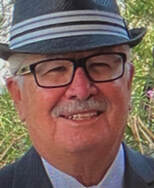 Dan Acosta is a Mexican American born and raised in El Paso. His grandparents emigrated to the US in the early 1900s. His career spanned 45 years as an educator, scientist, and administrator in academia and the federal government. He recently retired at age 74 in 2019 in Austin and plans to write about his experiences with discrimination and bias during his life and career. He received a B.S. degree in Pharmacy at UT-Austin and a Ph.D. in Pharmacology at the University of Kansas. He has had a few of his stories published in the Sky Island Journal, The Rush, Somos en Escrito, and The Acentos Review. A una anciana Venga, madre— su rebozo arrastra telaraña negra y sus enaguas le enredan los tobillos; apoya el peso de sus años en trémulo bastón y sus manos temblorosas empujan sobre el mostrador centavos sudados. ¿Aún todavía ve, viejecita, la jara de su aguja arrastrando colores? Las flores que borda con hilazas de a tres-por-diez no se marchitan tan pronto como las hojas del tiempo. ¿Qué cosas recuerda? Su boca parece constantemente saborear los restos de años rellenos de miel. ¿Dónde están los hijos que parió? ¿Hablan ahora solamente inglés y dicen que son hispanos? Sé que un día no vendrá a pedirme que le que escoja los matices que ya no puede ver. Sé que esperaré en vano su bendición desdentada. Miraré hacia la calle polvorienta refrescada por alas de paloma hasta que un chiquillo mugroso me jale de la manga y me pregunte: — Señor, jau mach is dis? -- To an Old Woman Come, mother— your rebozo trails a black web and your hem catches on your heels, you lean the burden of your years on shaky cane, and palsied hand pushes sweat-grimed pennies on the counter. Can you still see, old woman, the darting color-trailed needle of your trade? The flowers you embroider with three-for-a-dime threads cannot fade as quickly as the leaves of time. What things do you remember? Your mouth seems to be forever tasting the residue of nectar hearted years. Where are the sons you bore? Do they speak only English now and say they’re Spanish? One day I know you will not come and ask for me to pick the colors you can no longer see. I know I’ll wait in vain for your toothless benediction. I’ll look into the dusty street made cool by pigeons’ wings until a dirty kid will nudge me and say: “Señor, how mach ees thees?” — RAFAEL JESÚS GONZÁLEZ © 2022 BY RAFAEL JESÚS GONZÁLEZ Riffs sobre el poema |
Archives
June 2024
Categories
All
|
Donate and Make Literature Happen
is published by the Somos En Escrito Literary Foundation,
a 501 (c) (3) non-profit, tax-exempt corporation. EIN 81-3162209

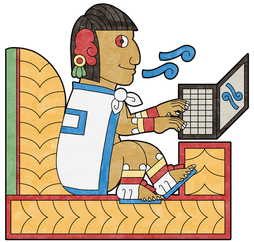
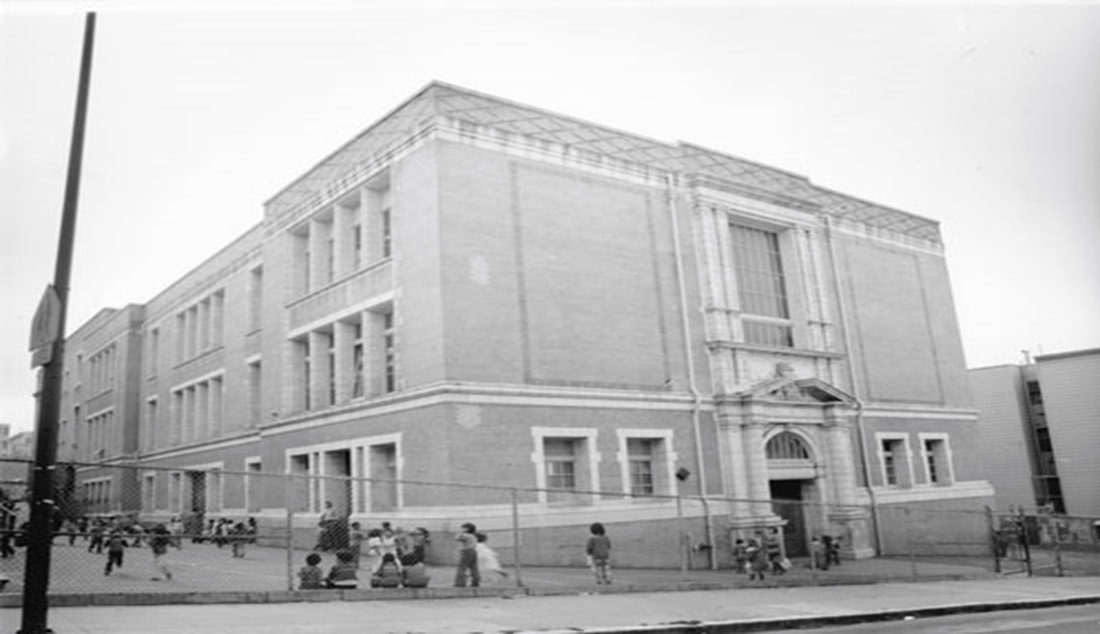
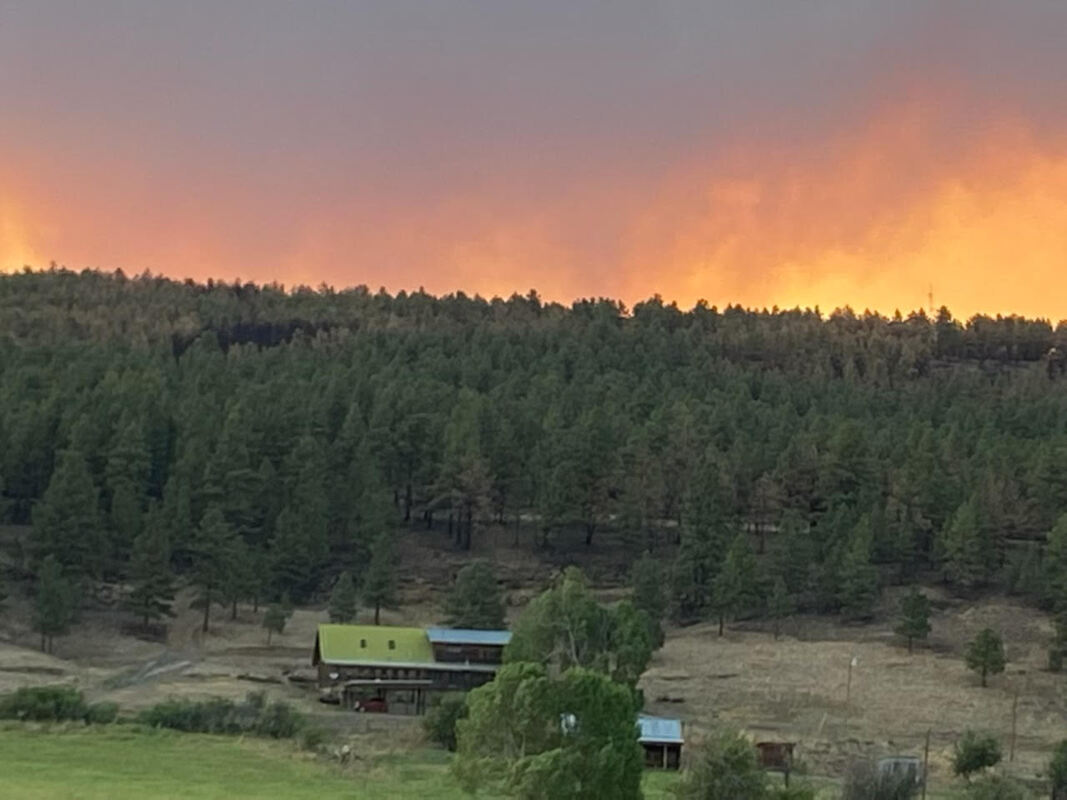
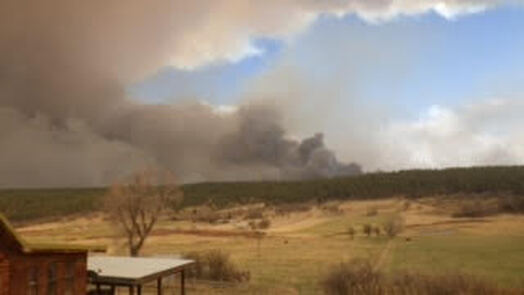
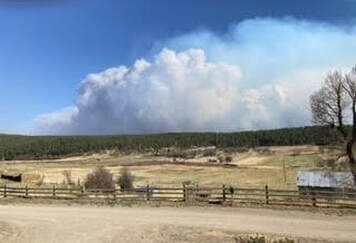
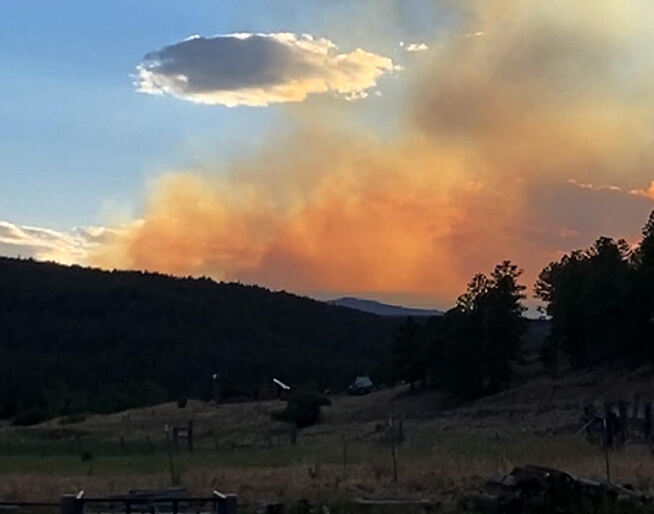
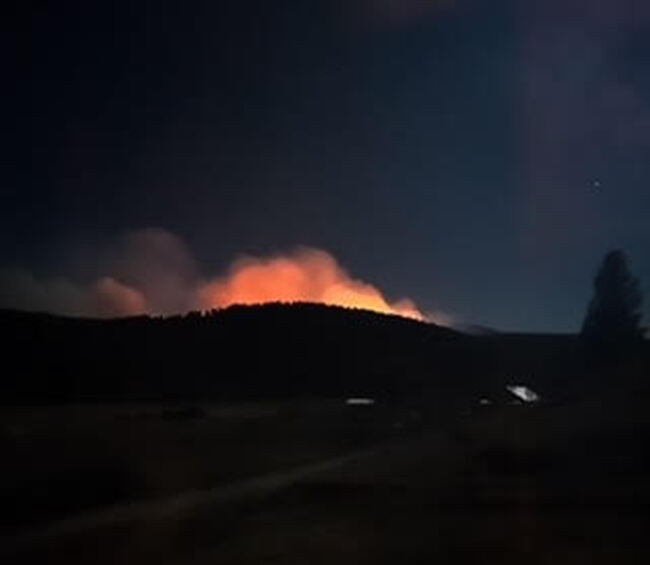
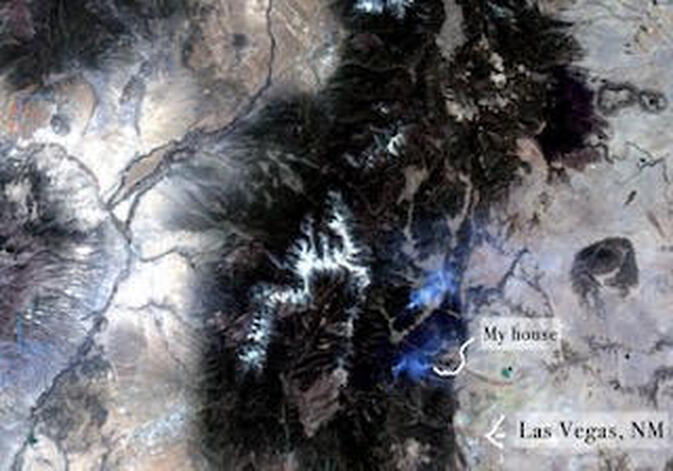
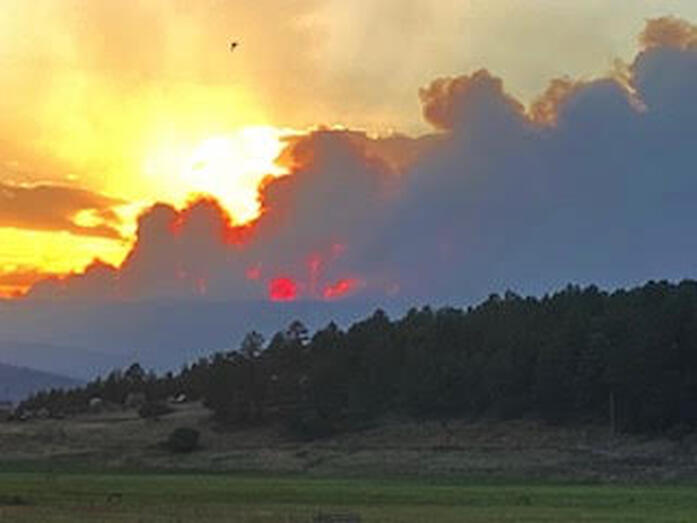
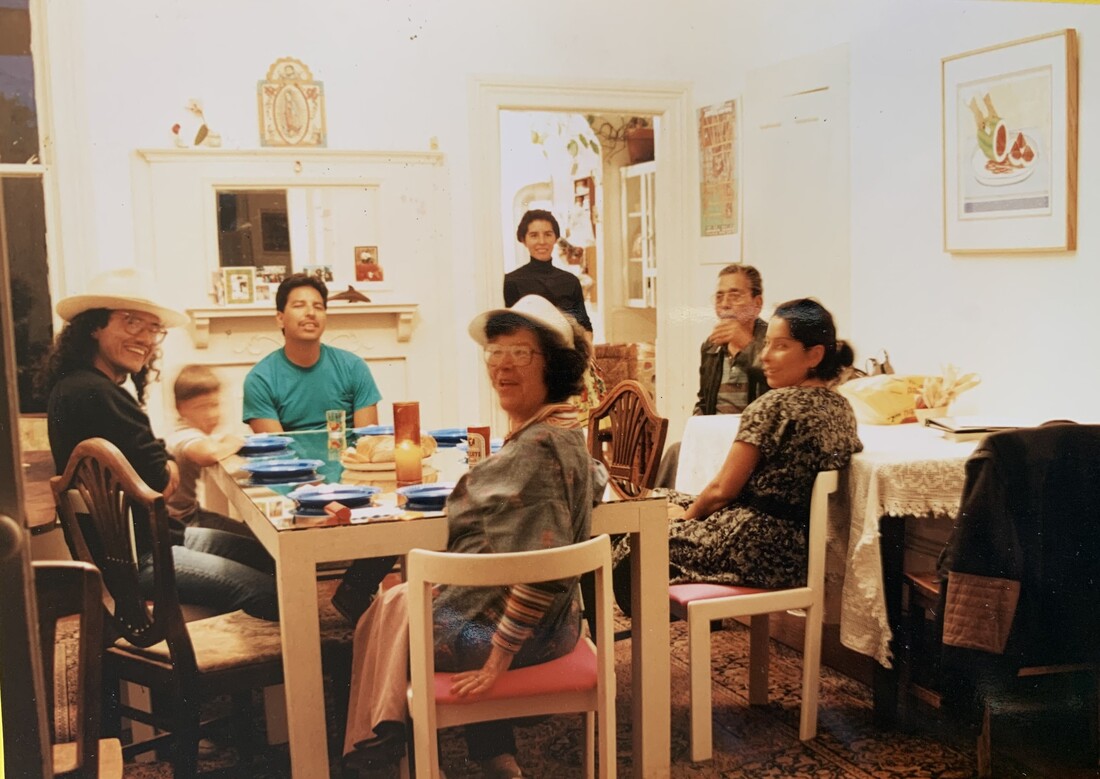

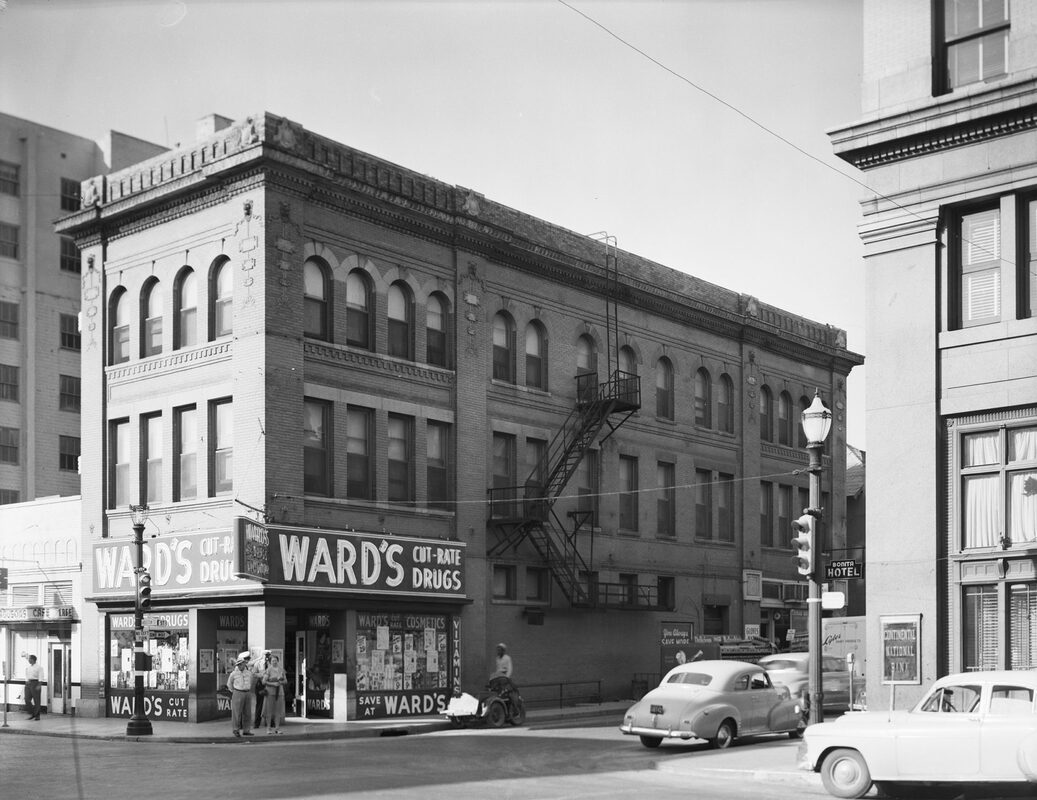
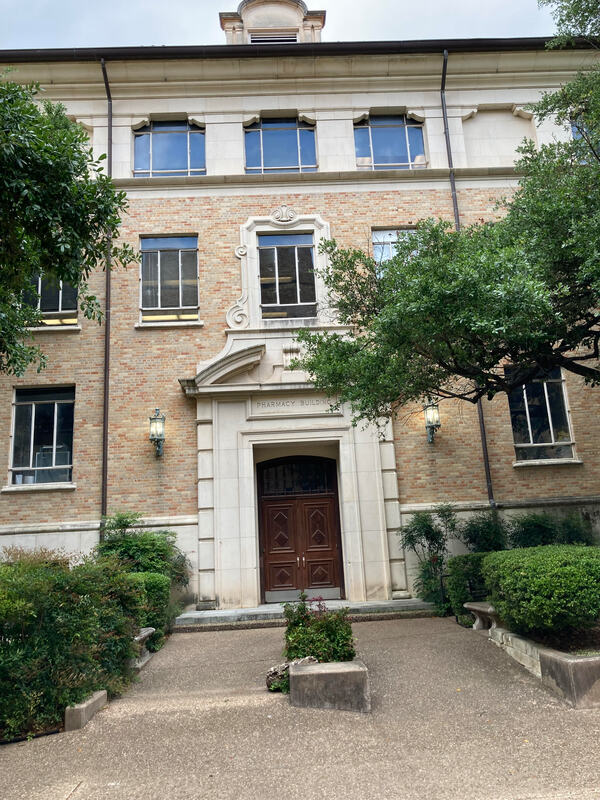
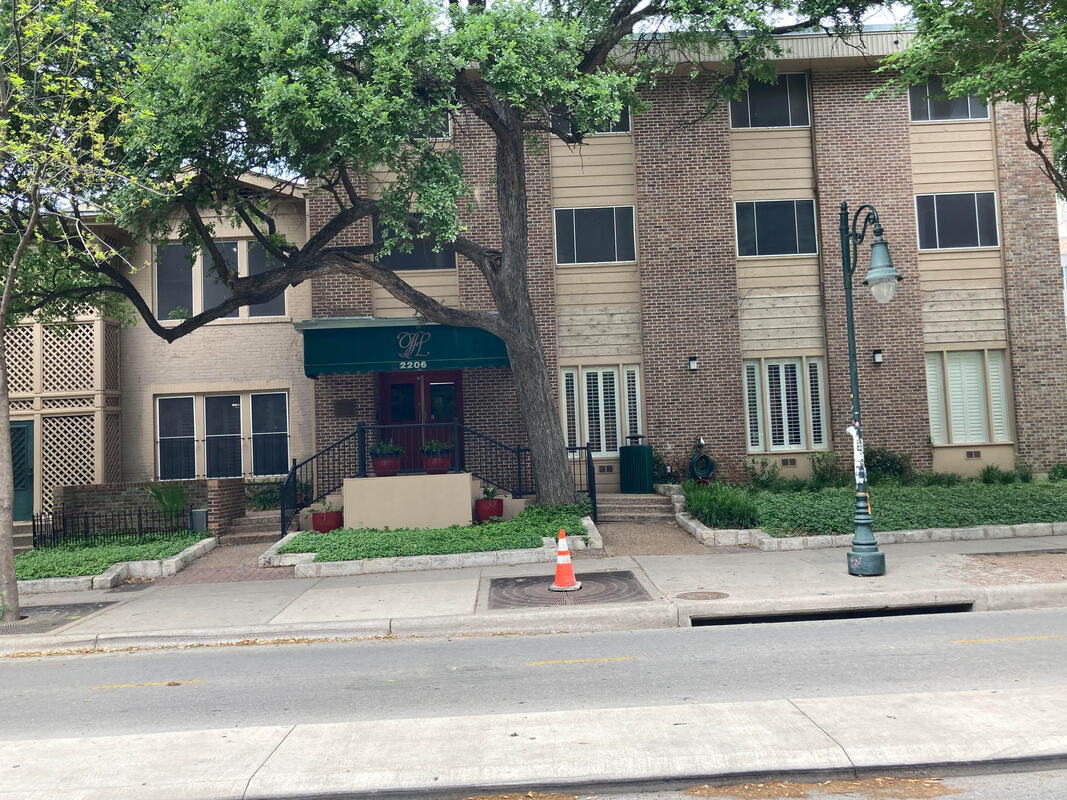
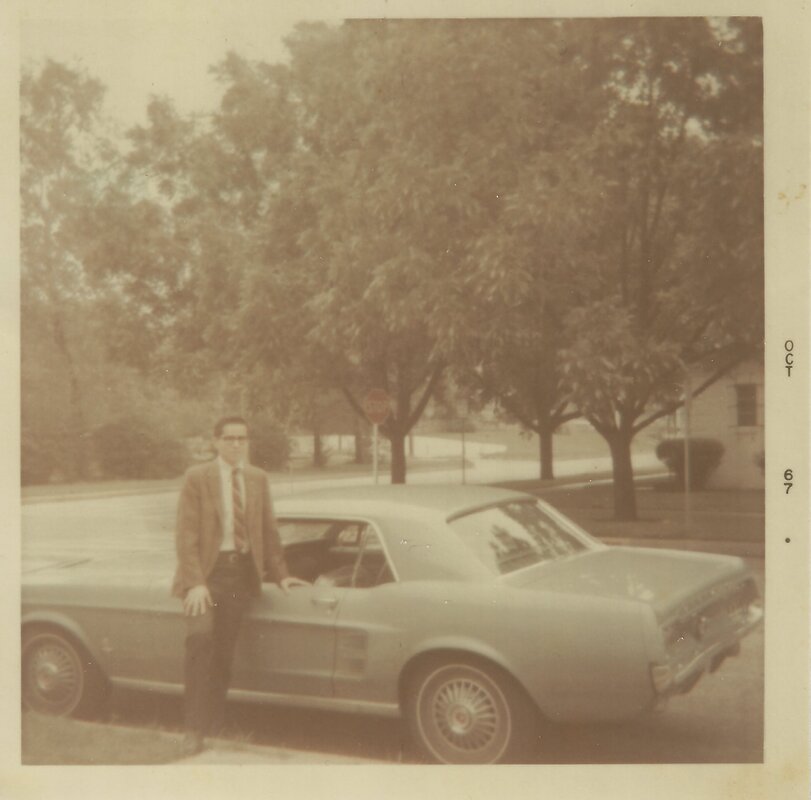
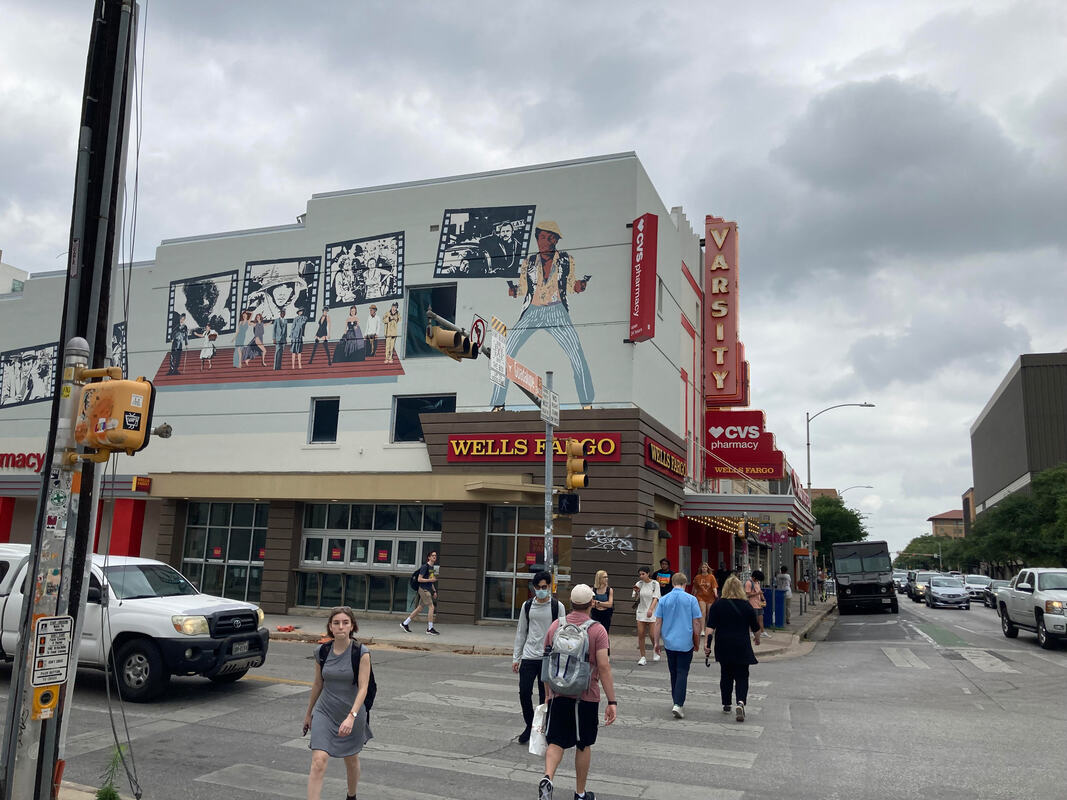
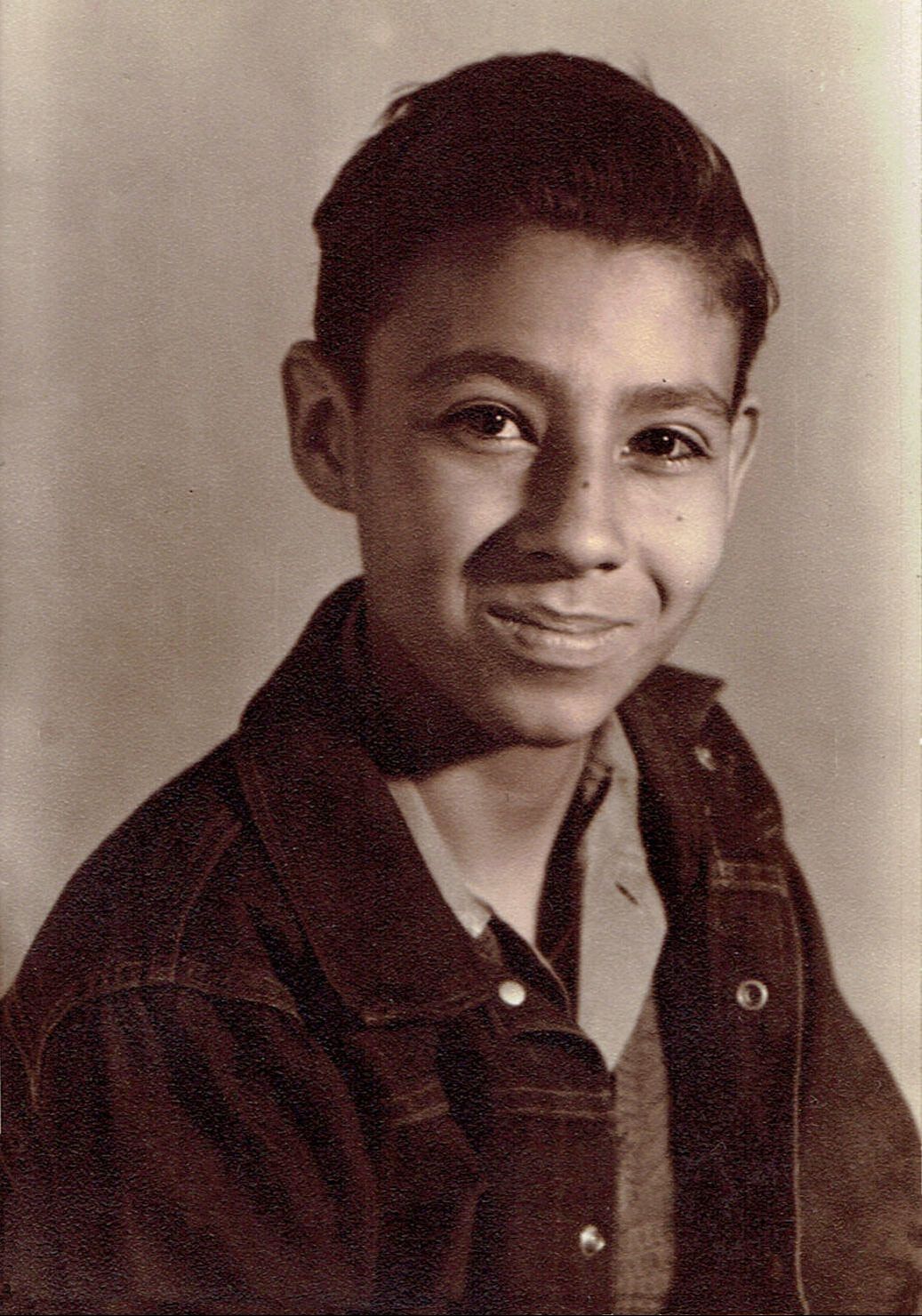
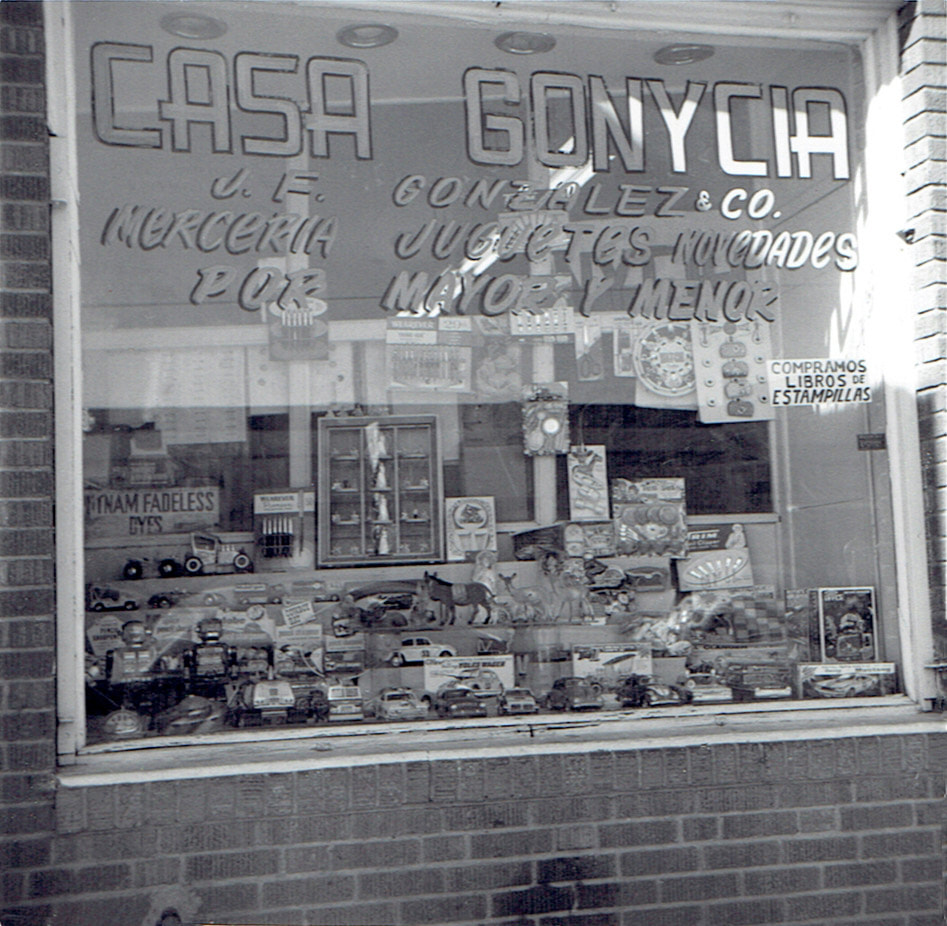
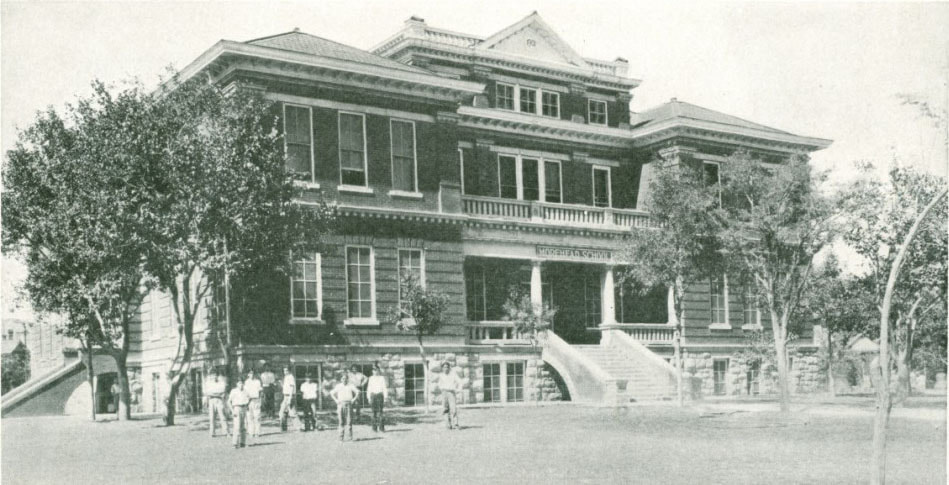
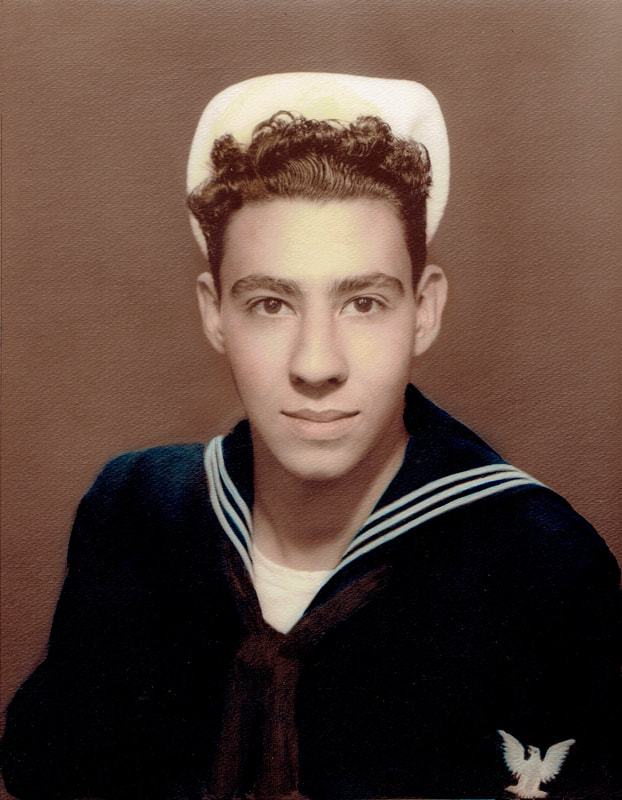
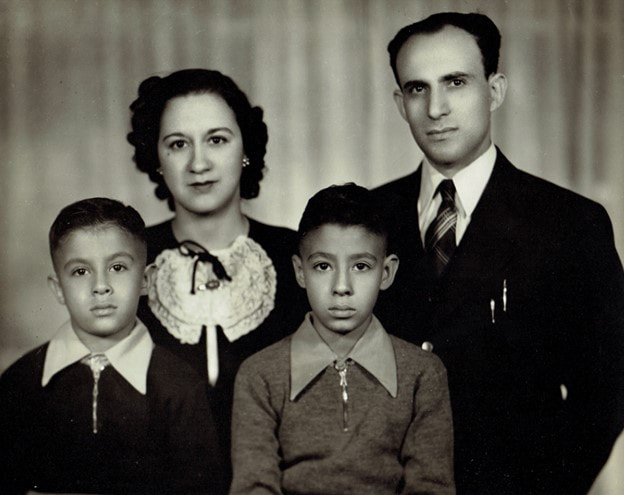
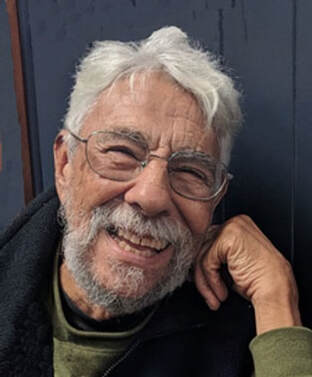
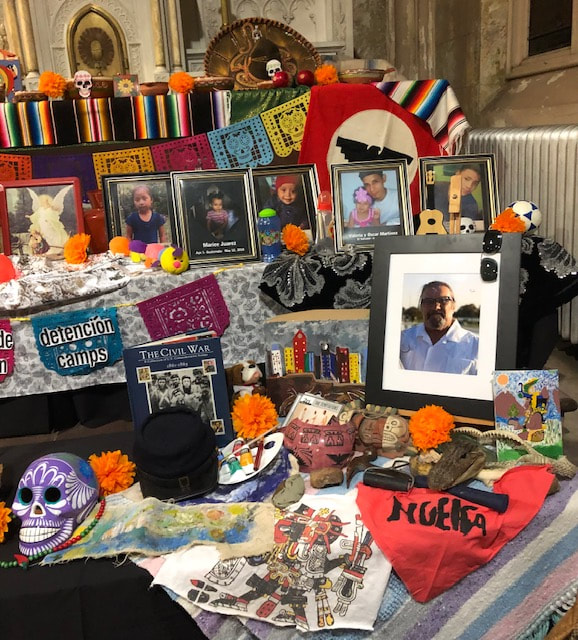
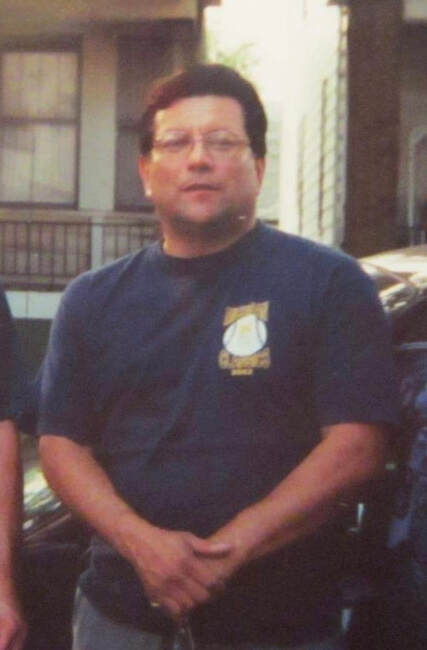
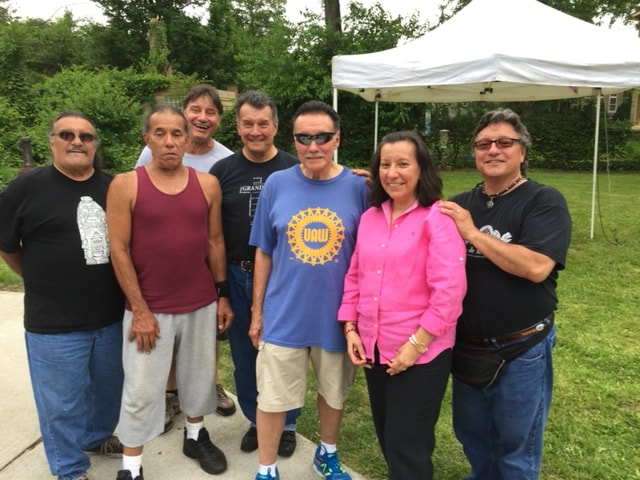
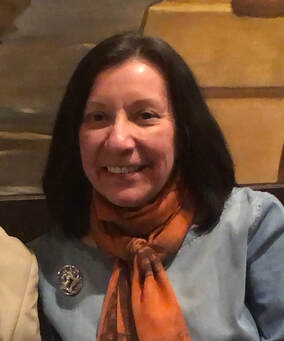
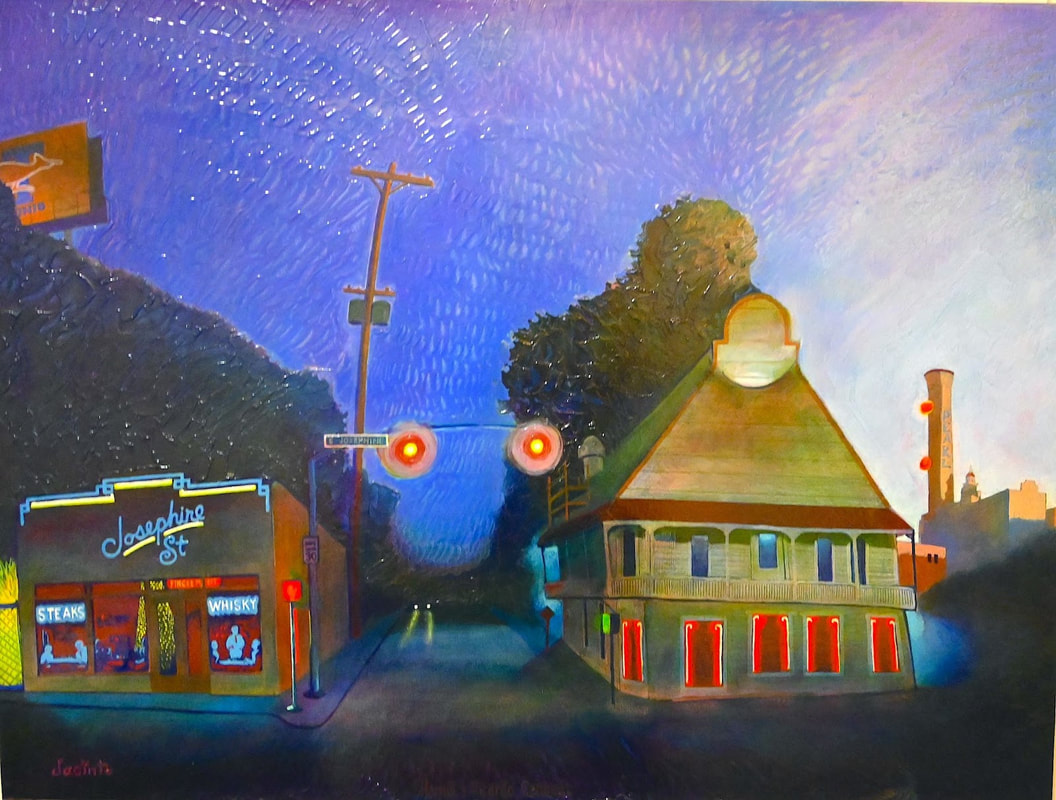
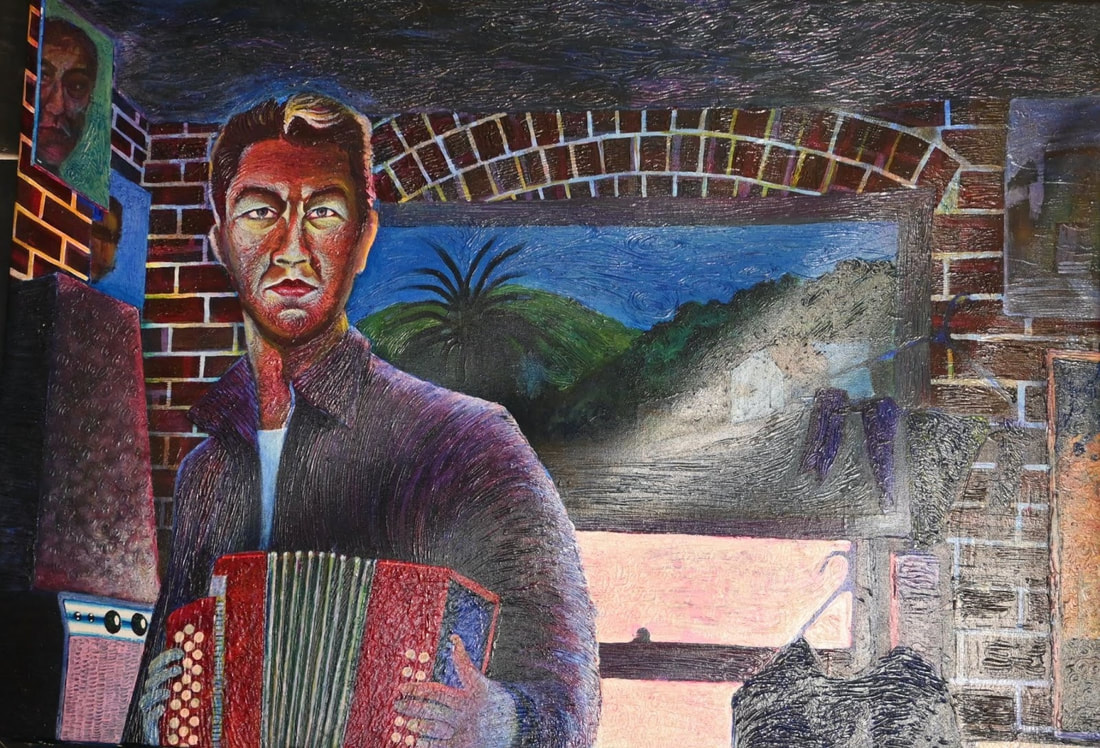
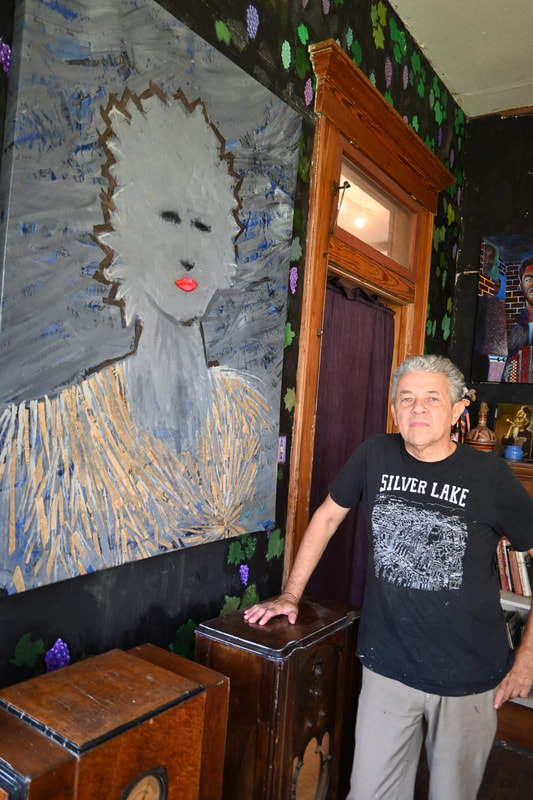
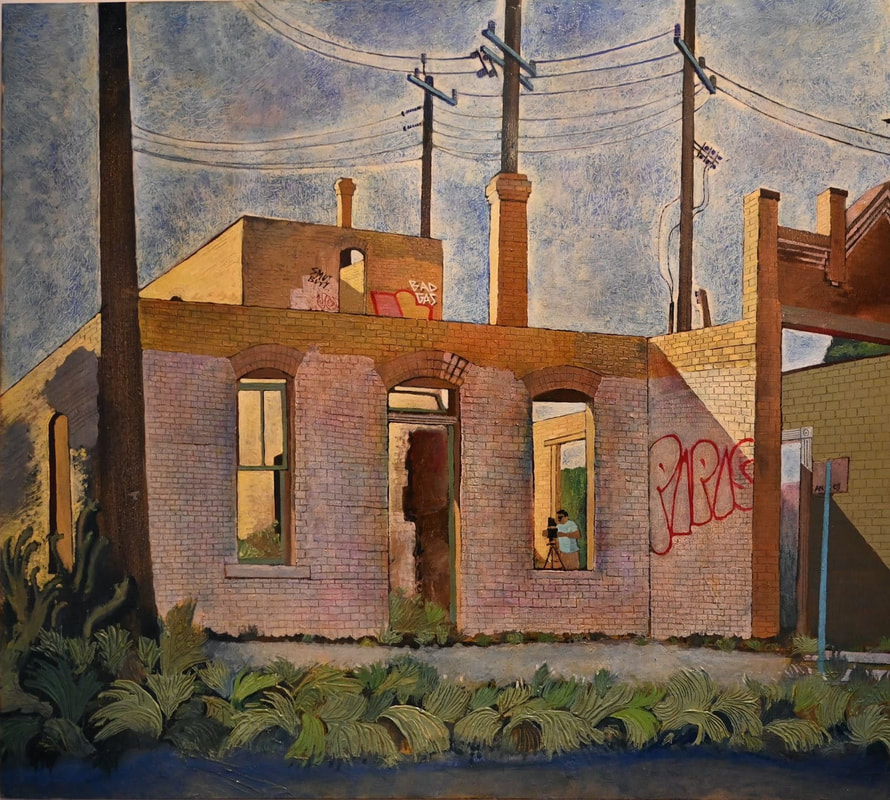
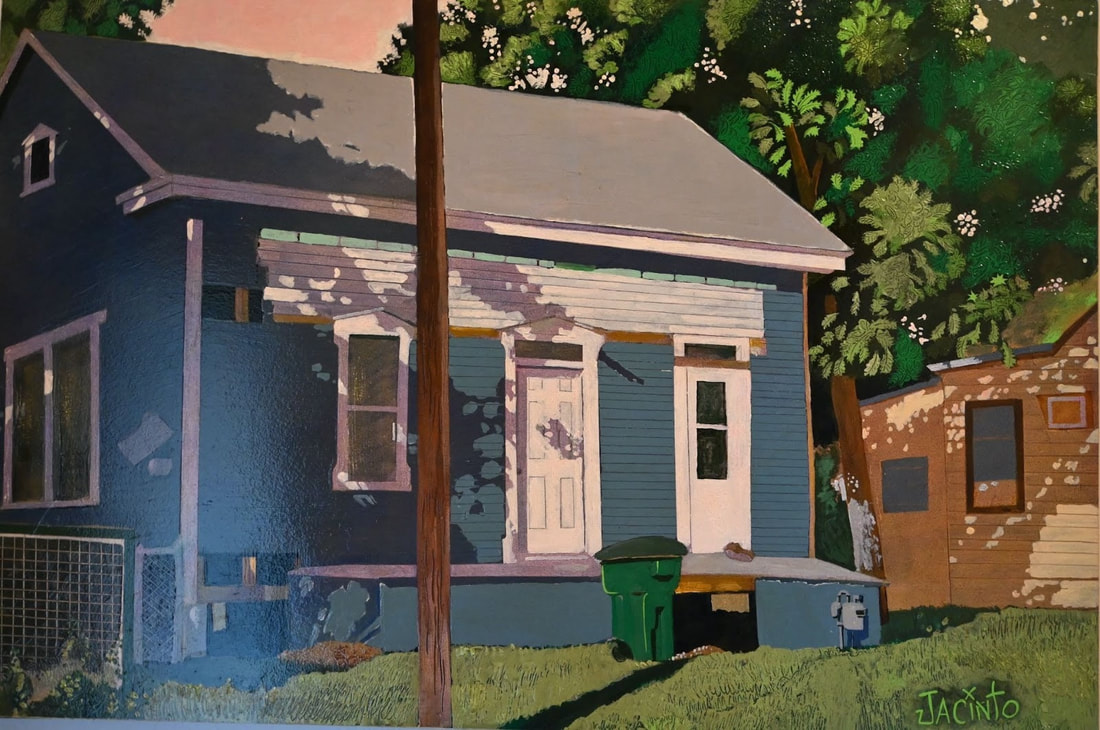
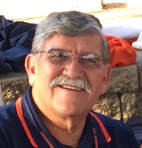
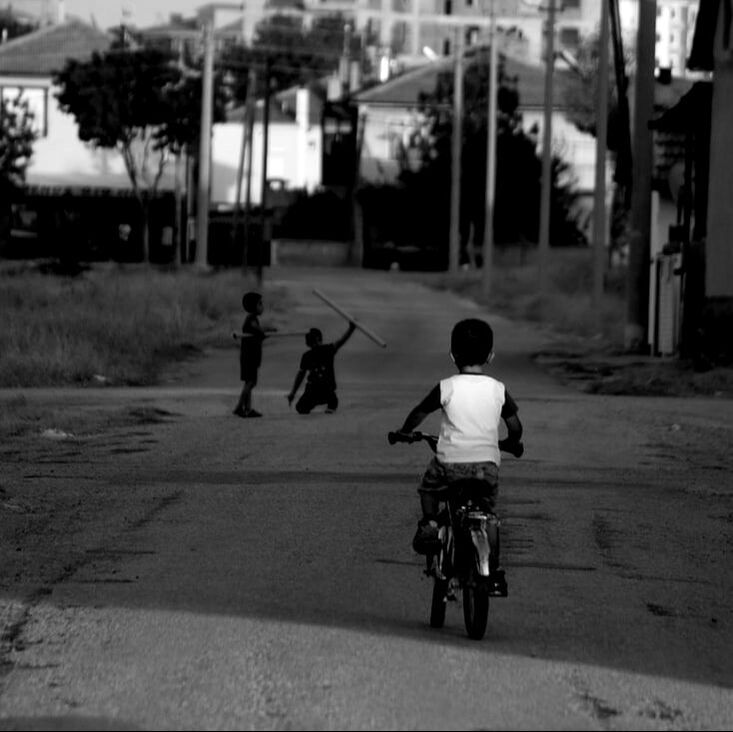
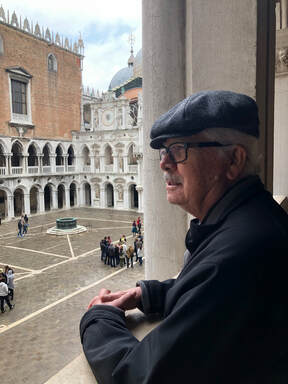
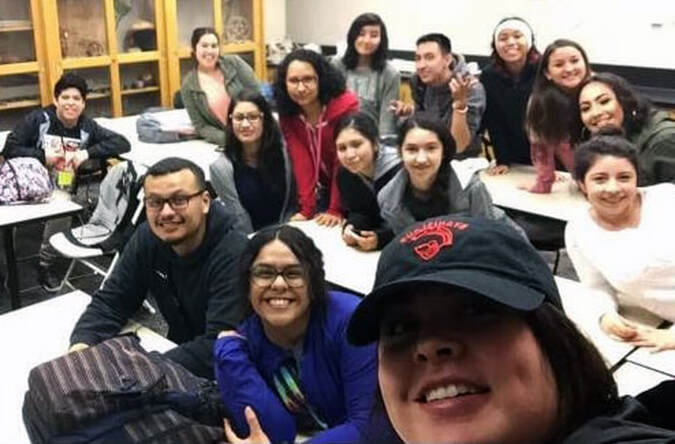
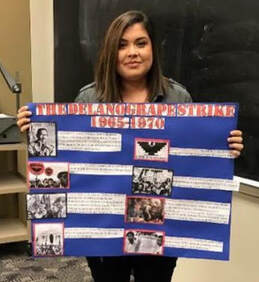
 RSS Feed
RSS Feed